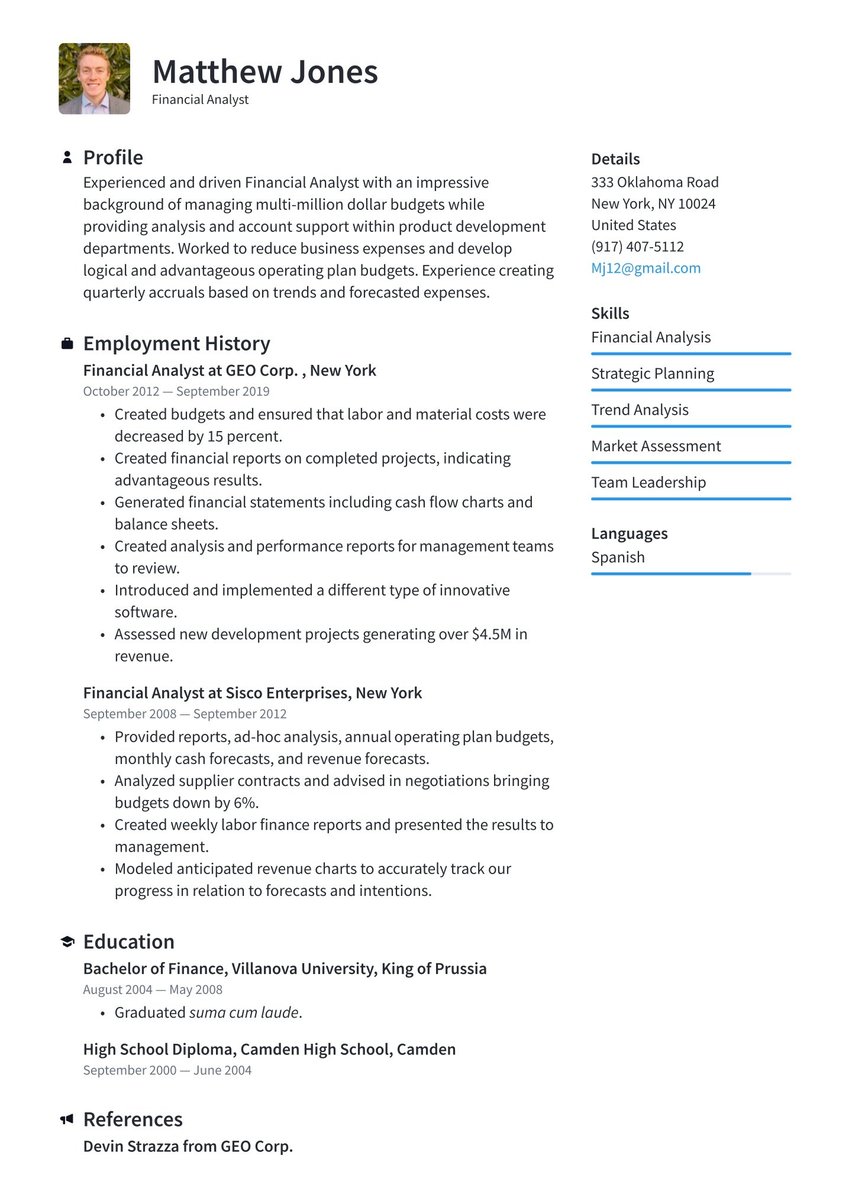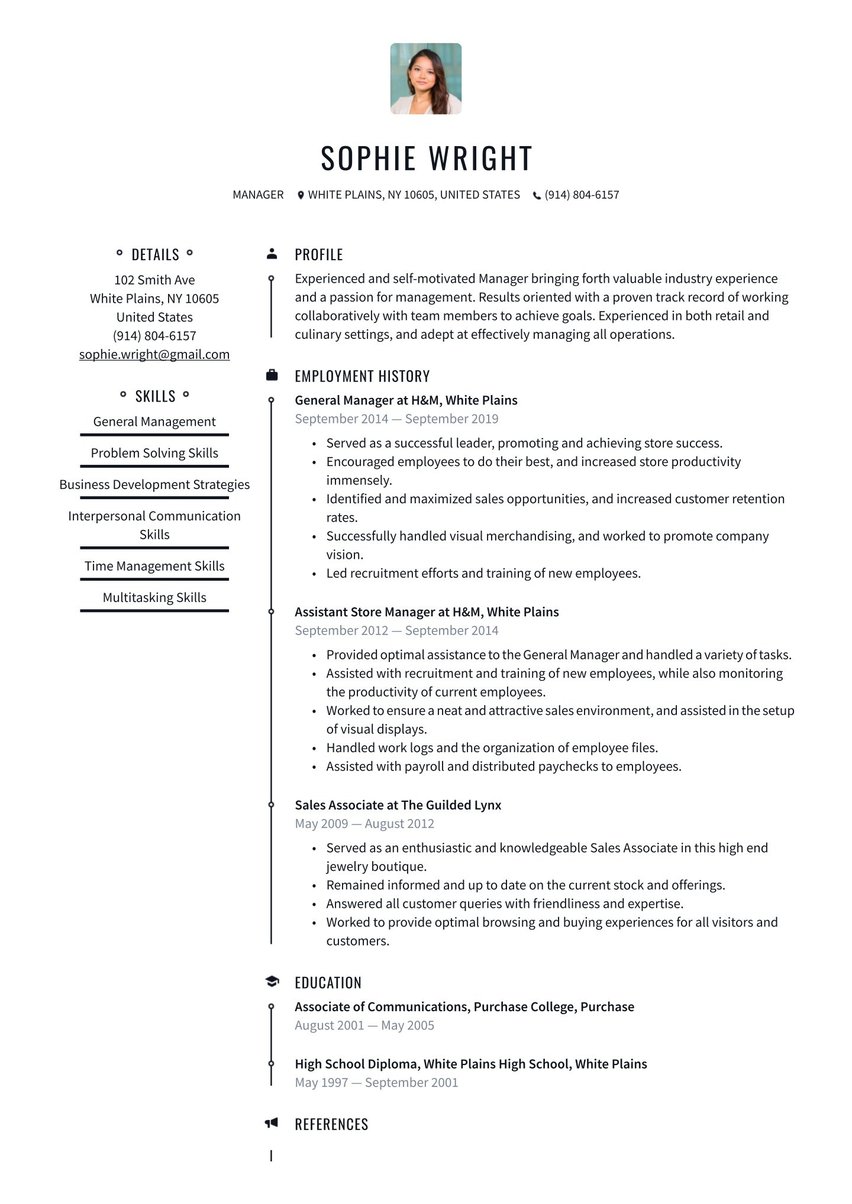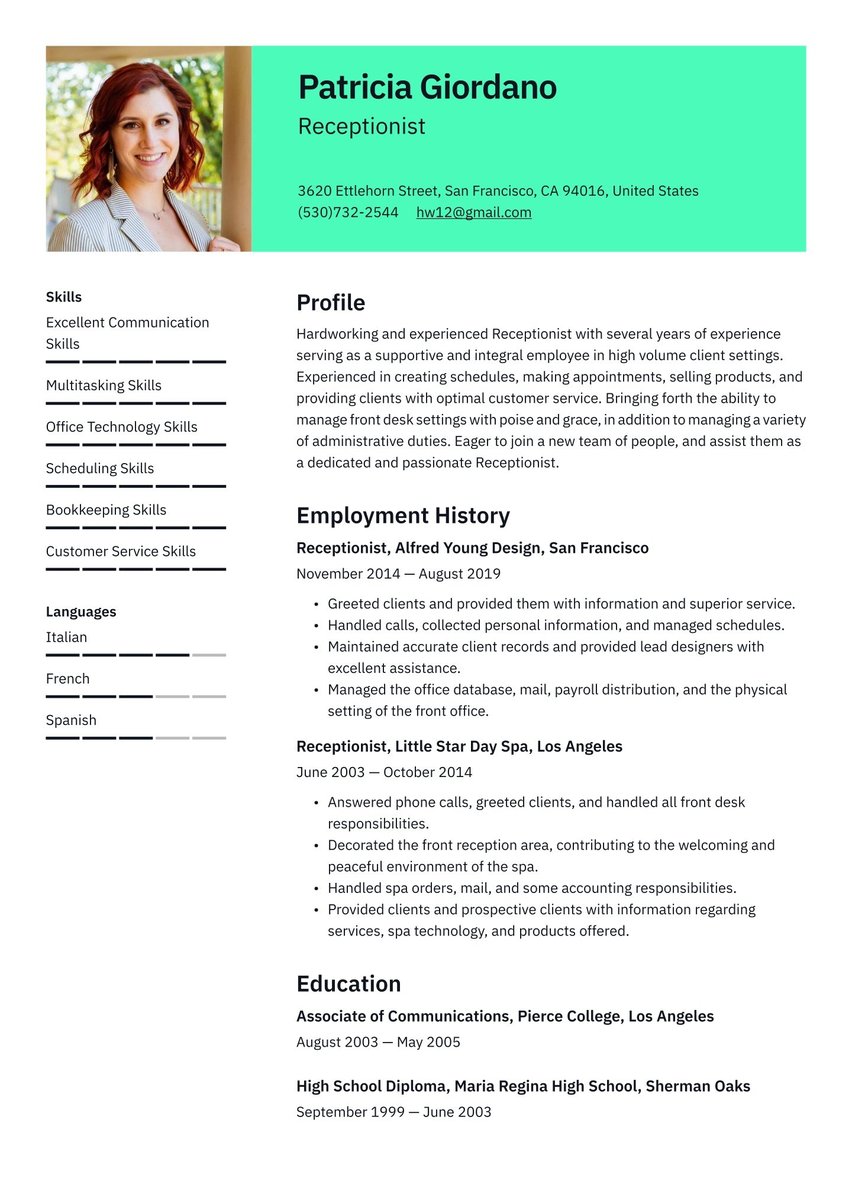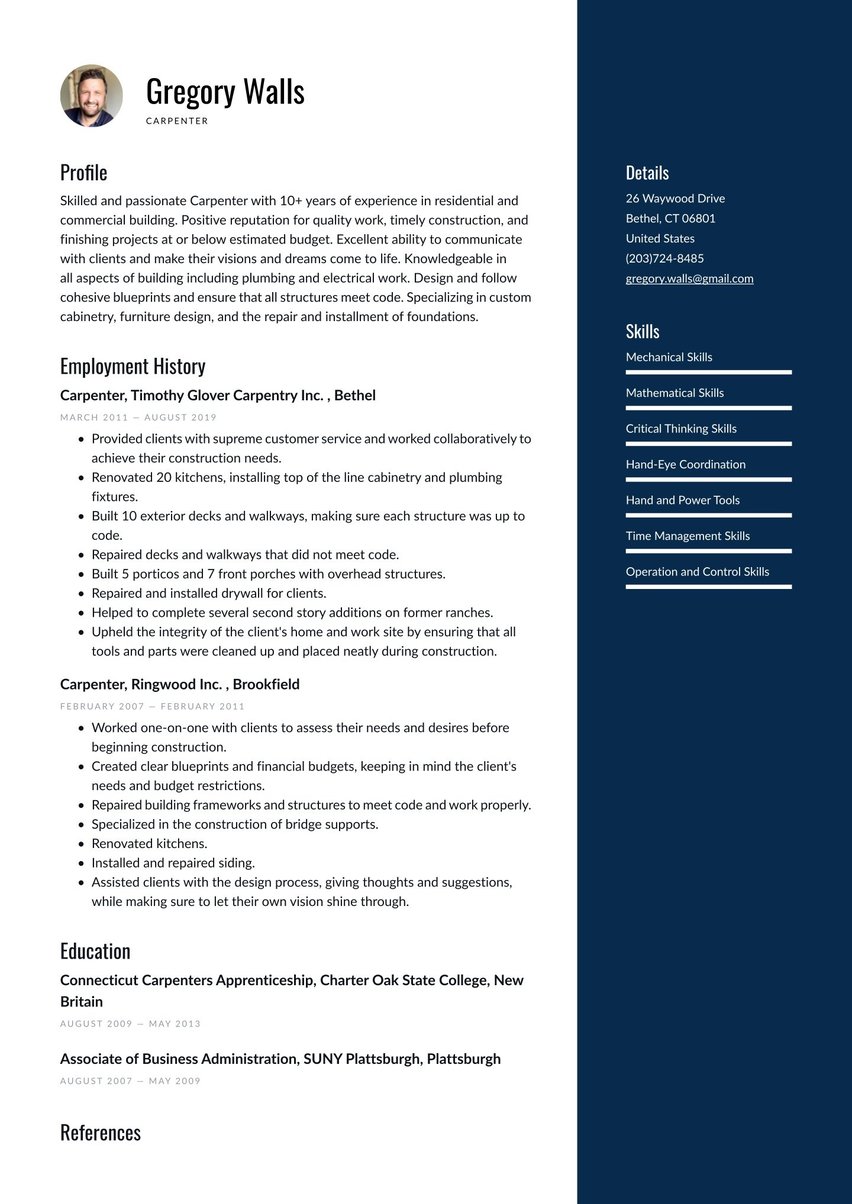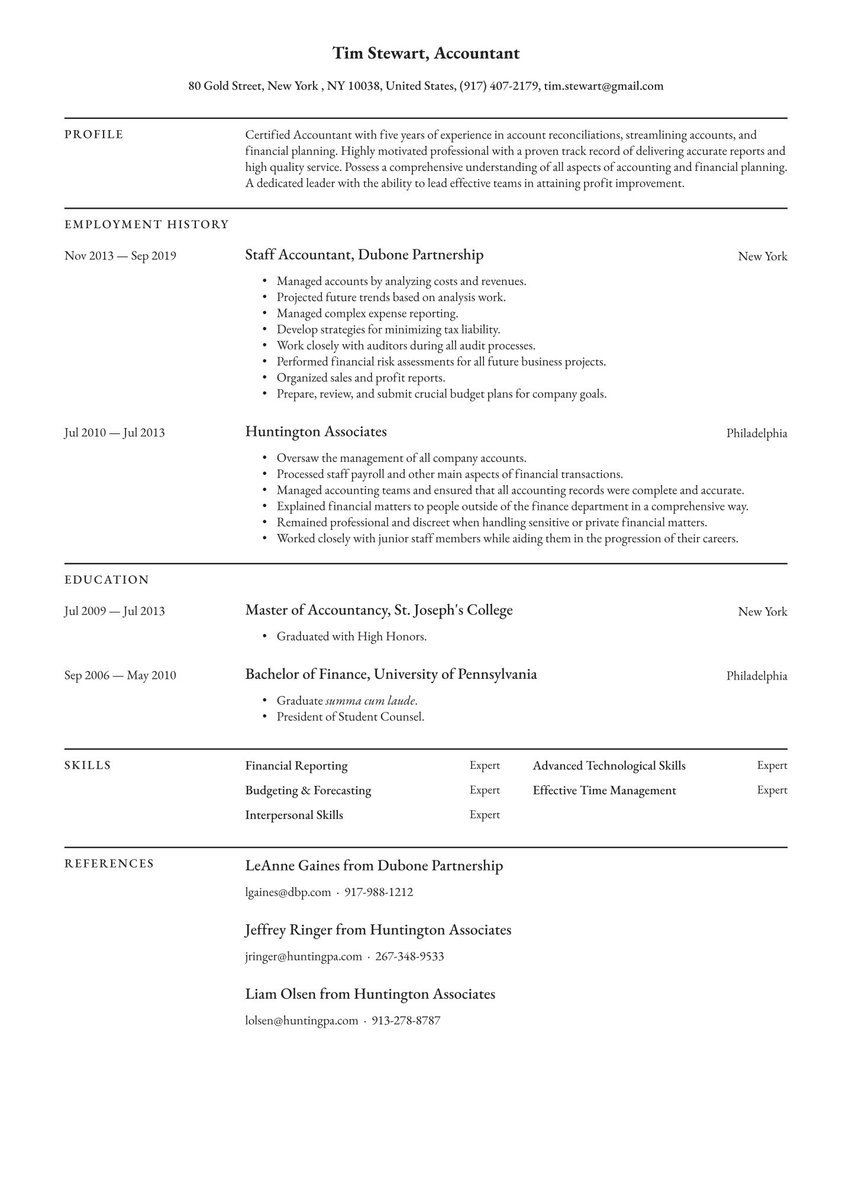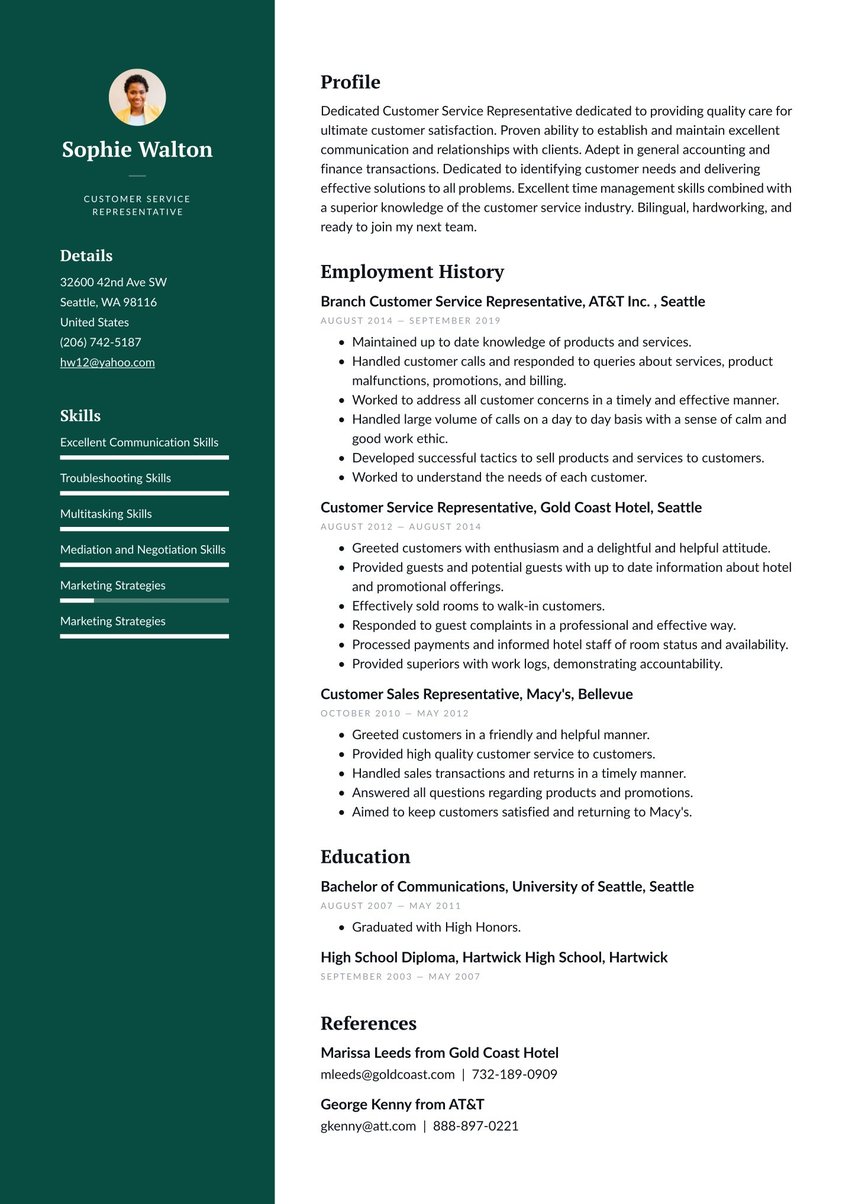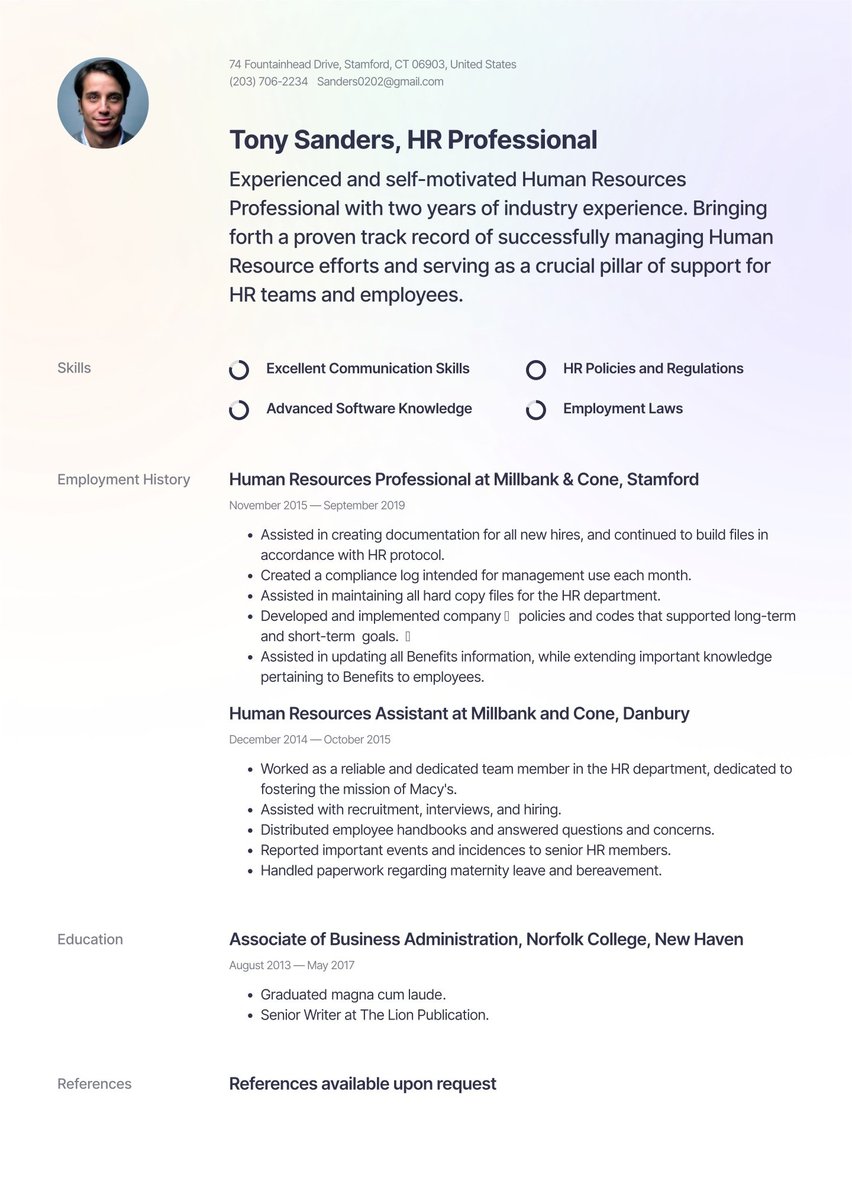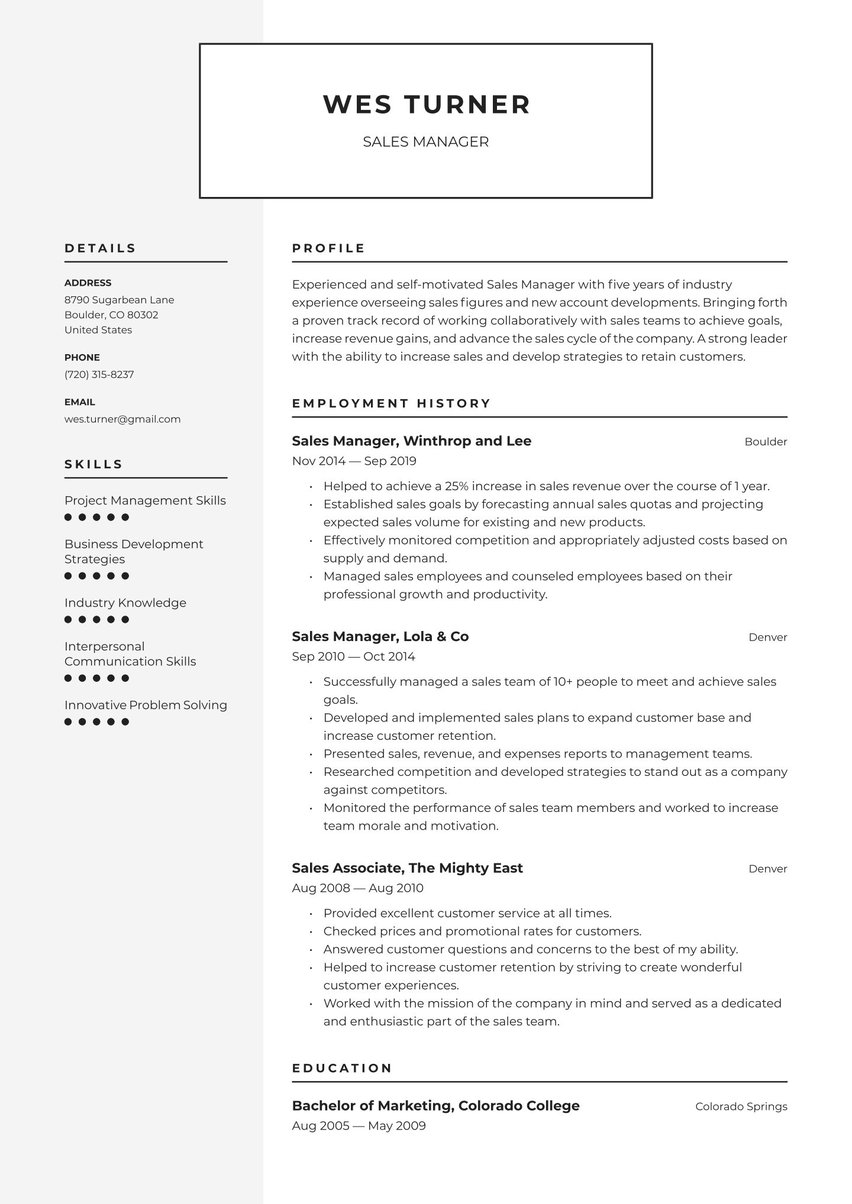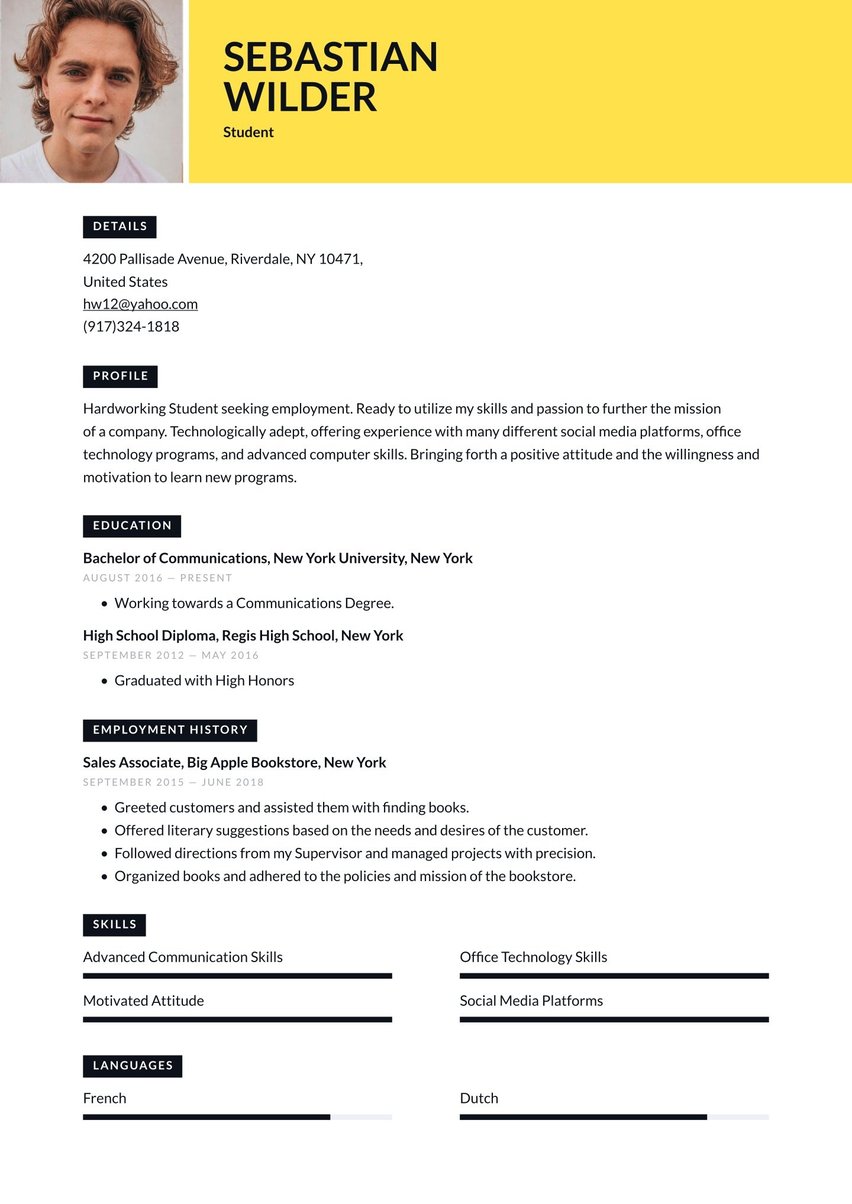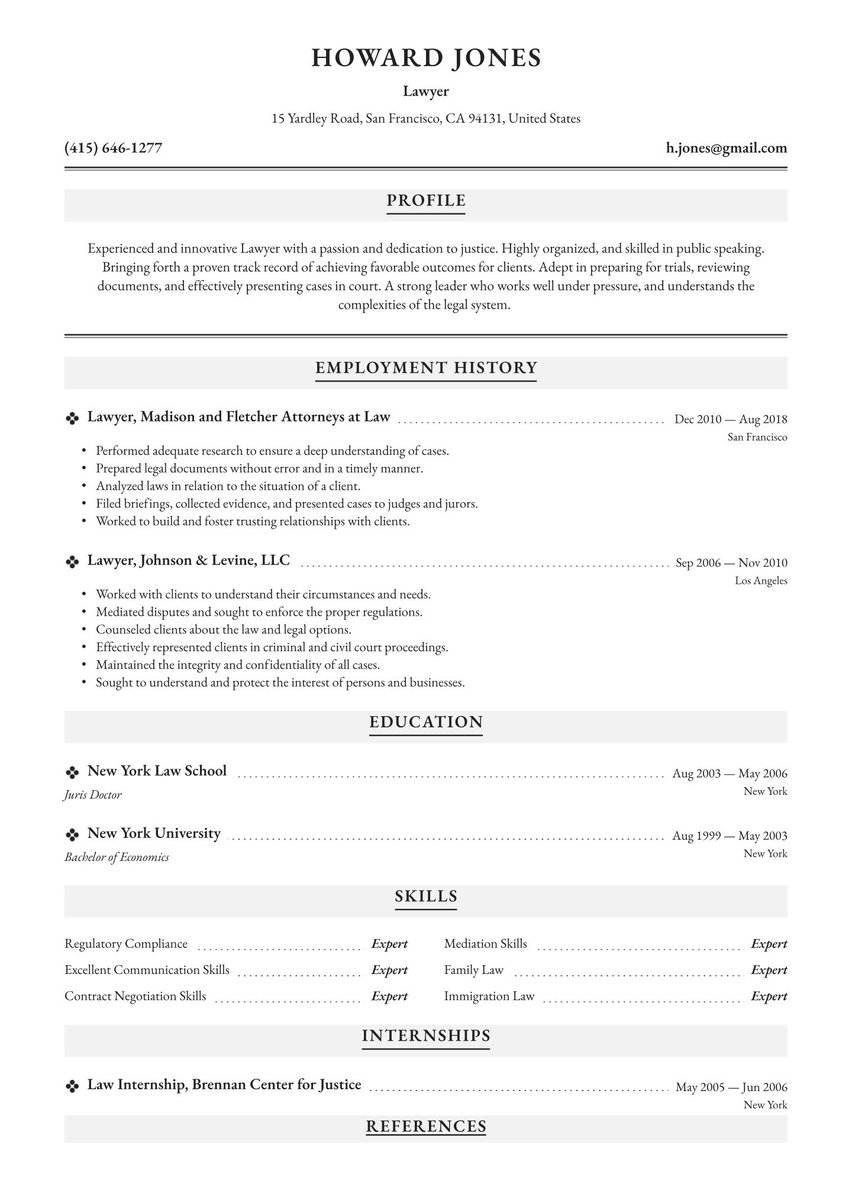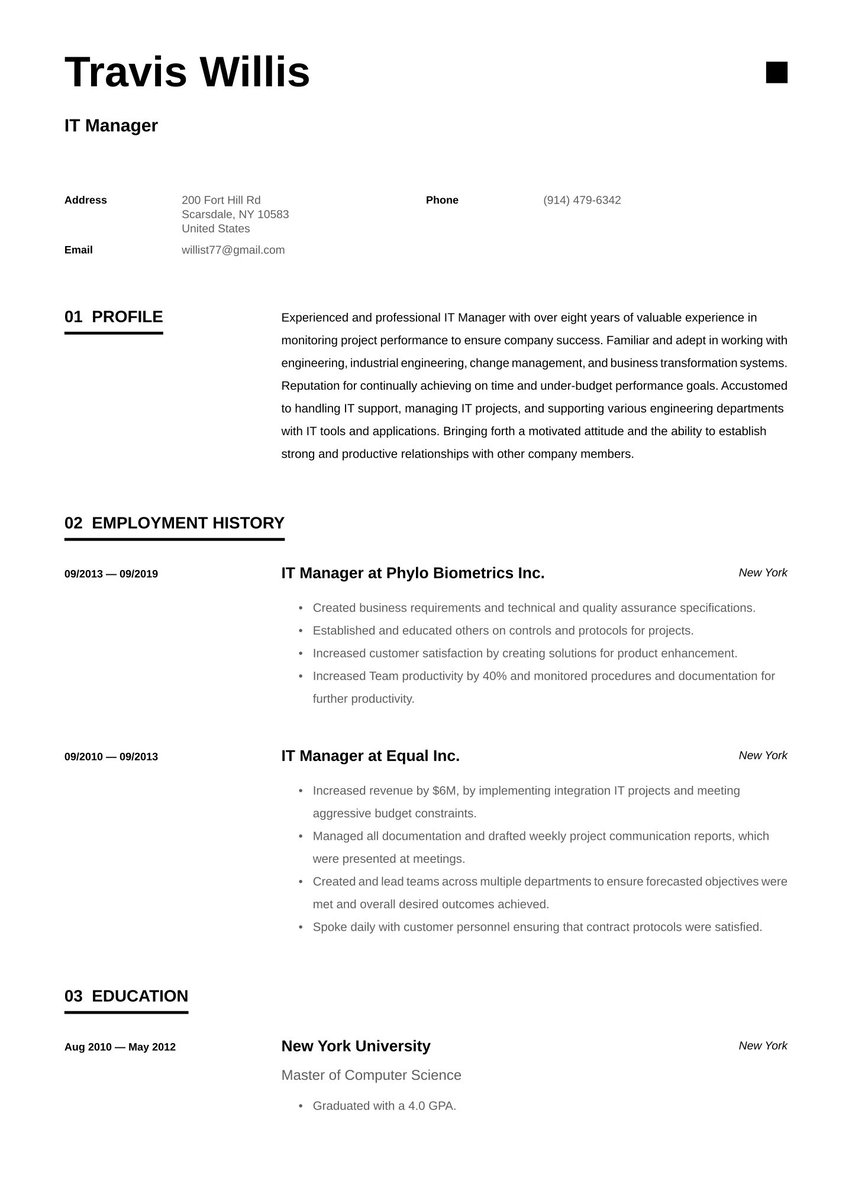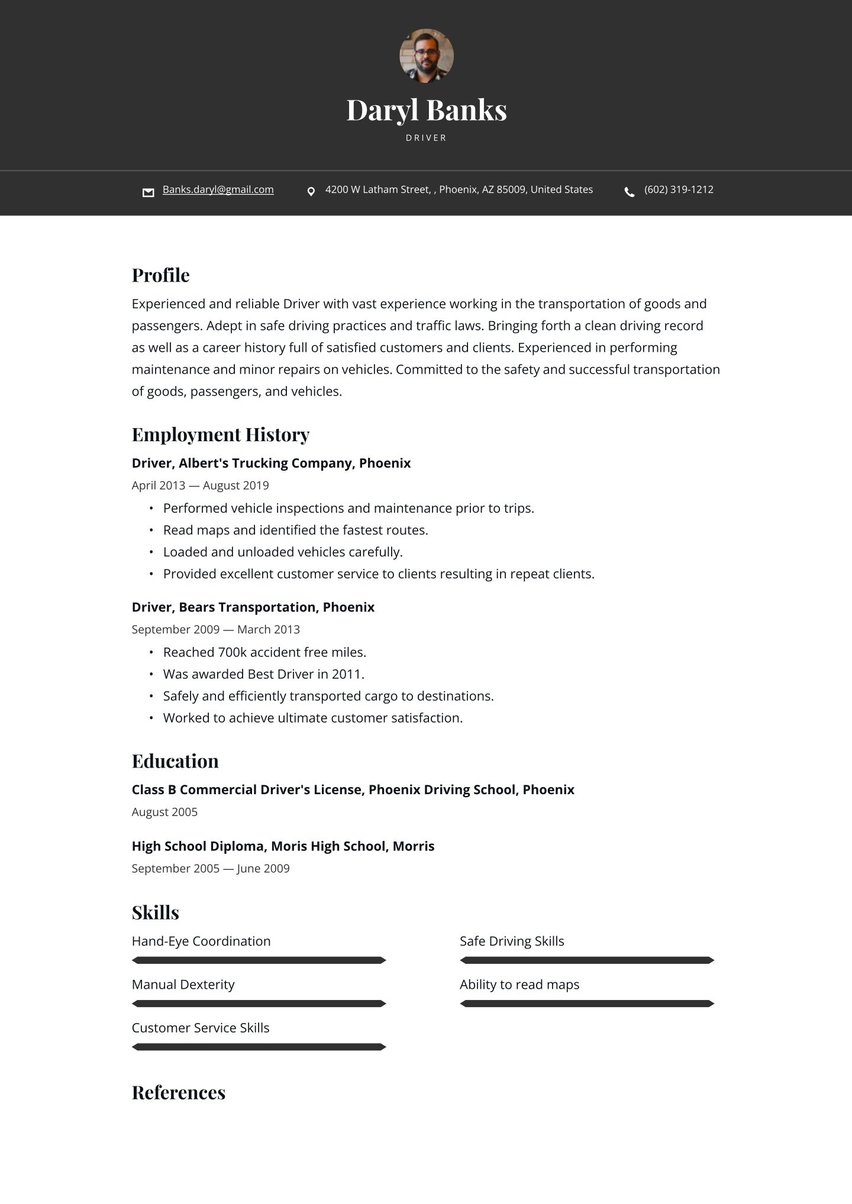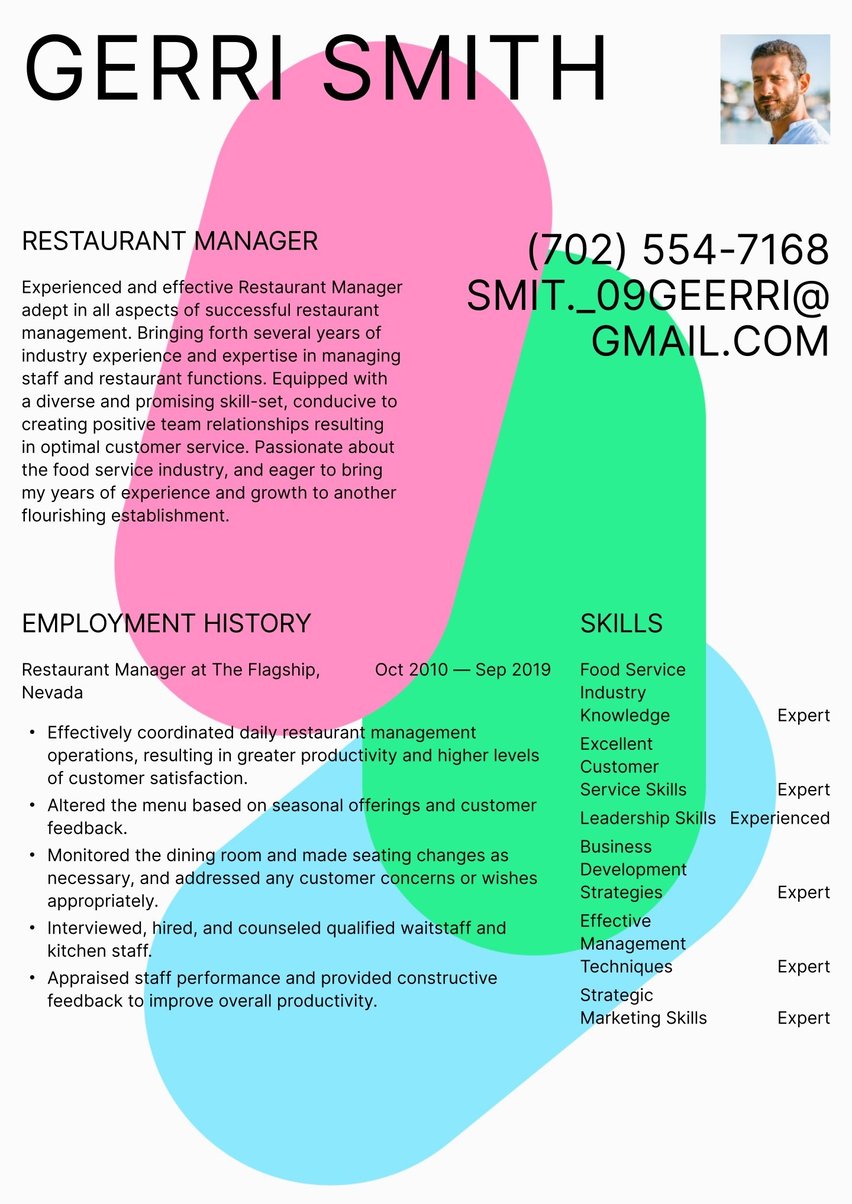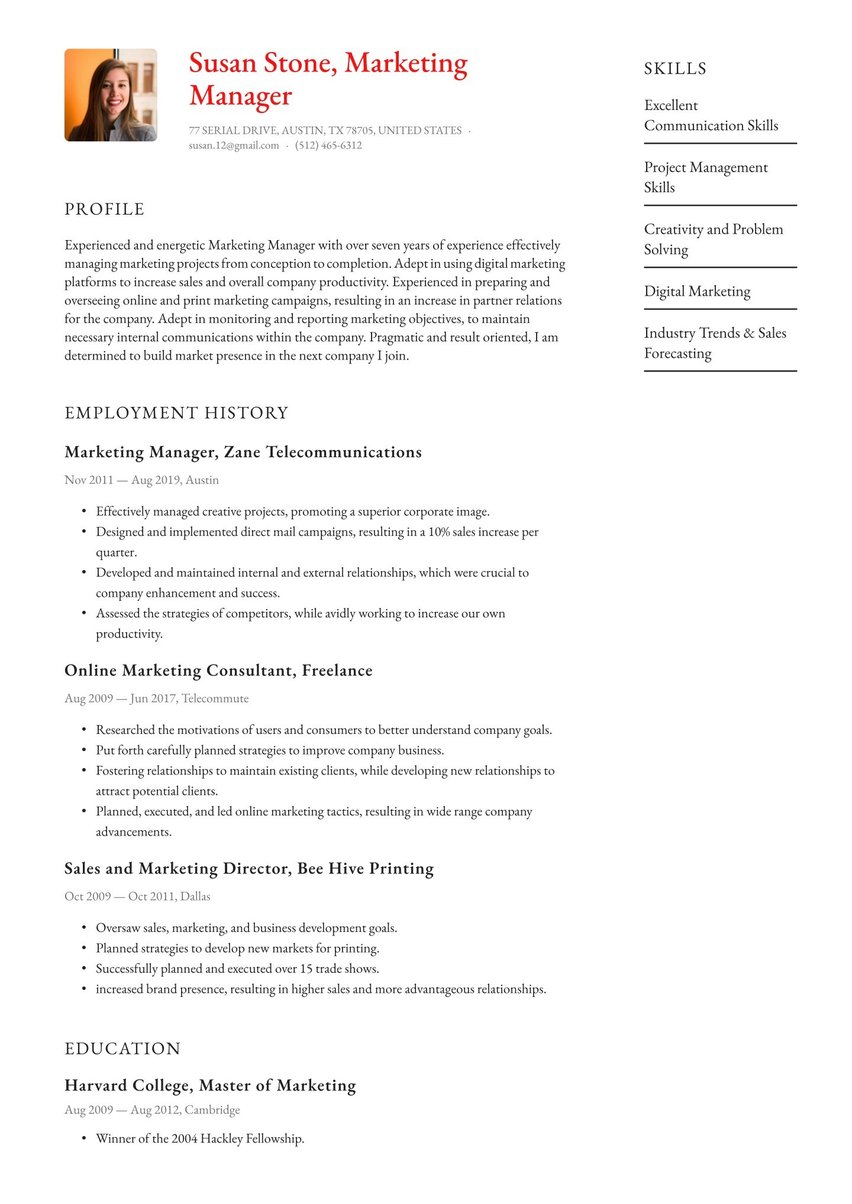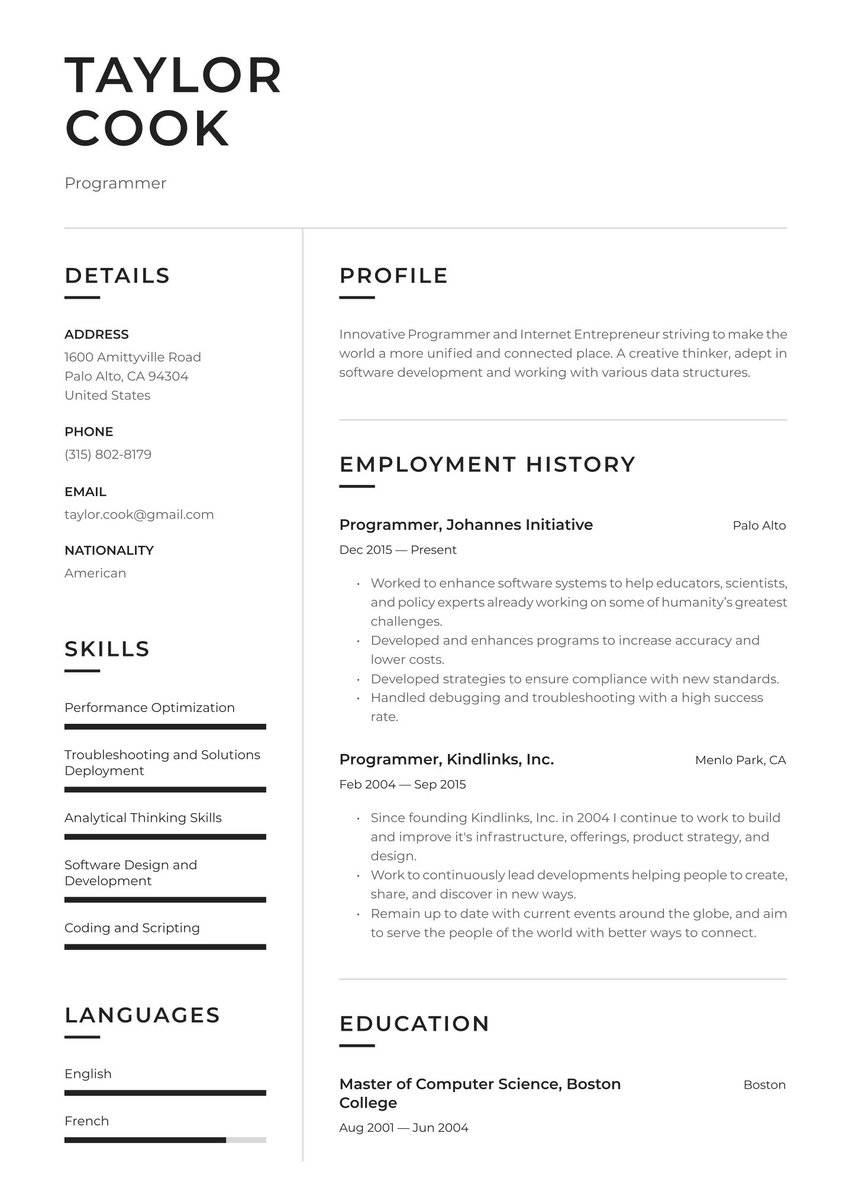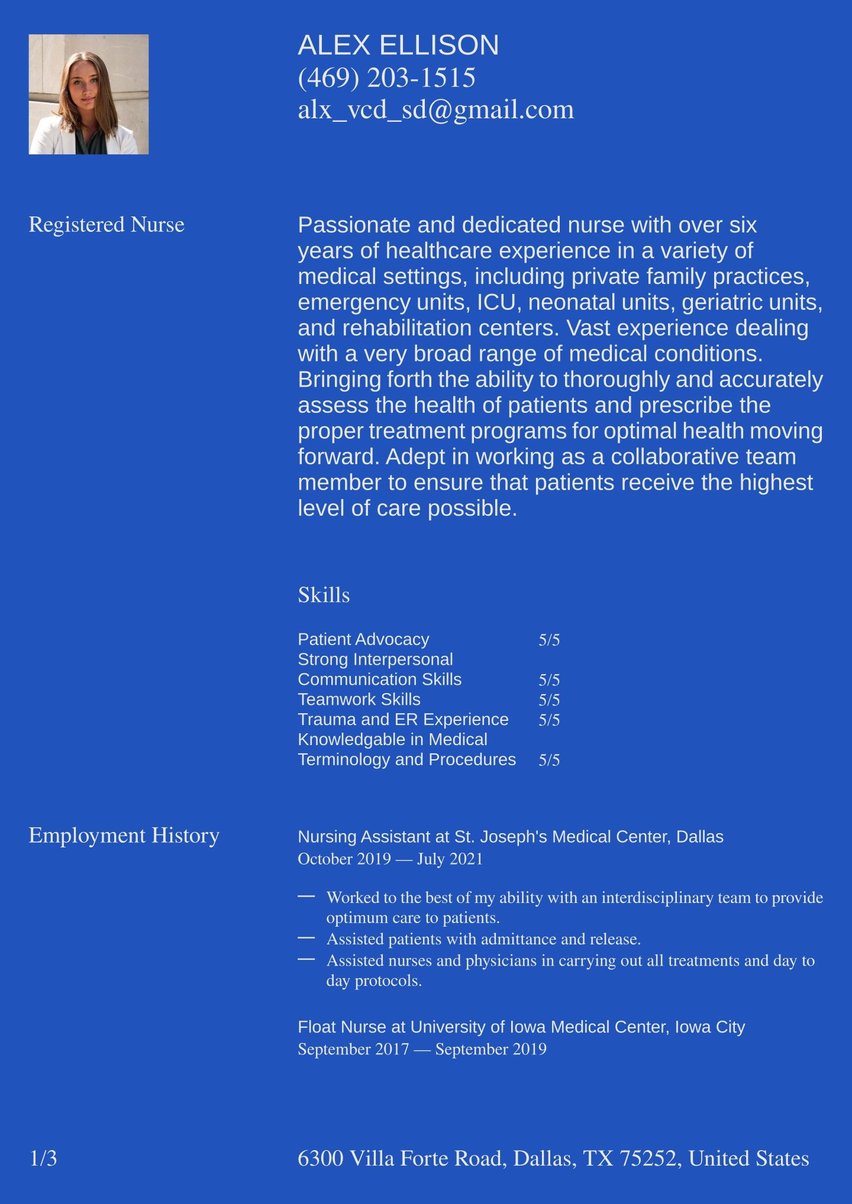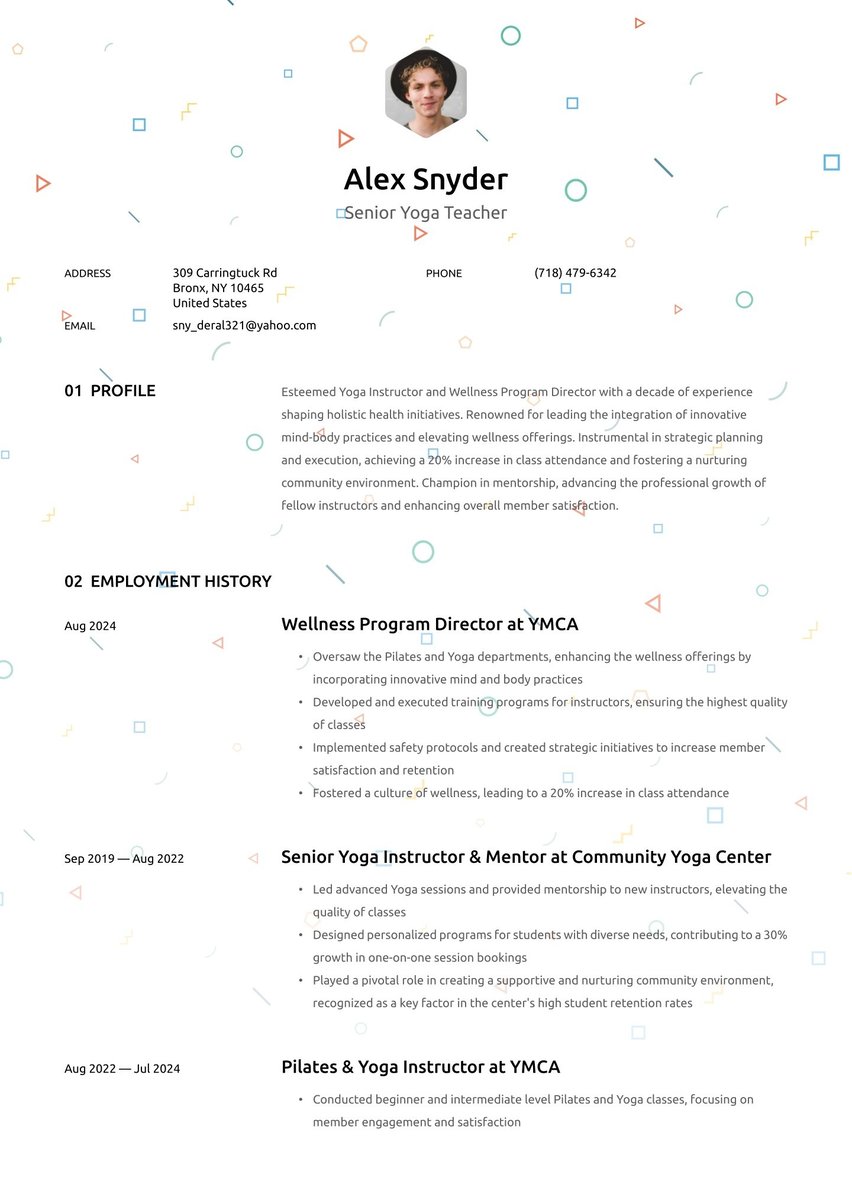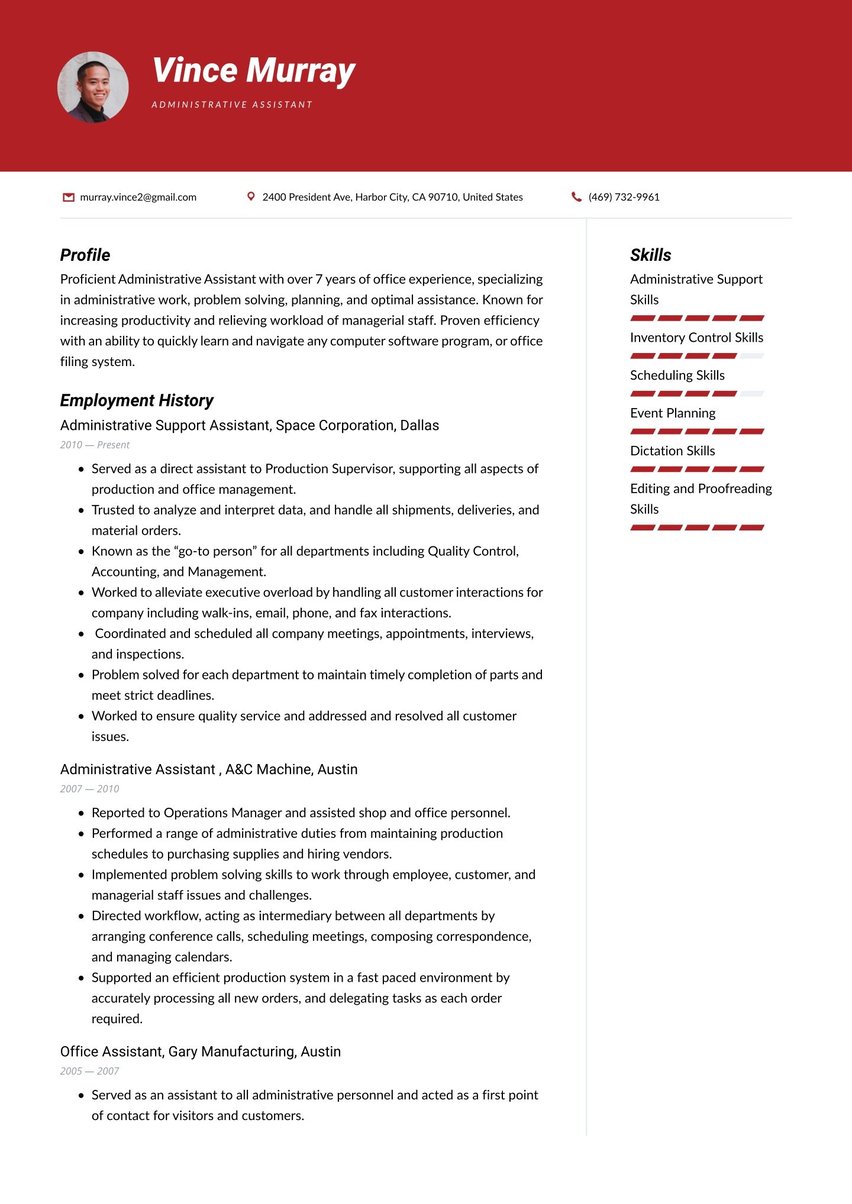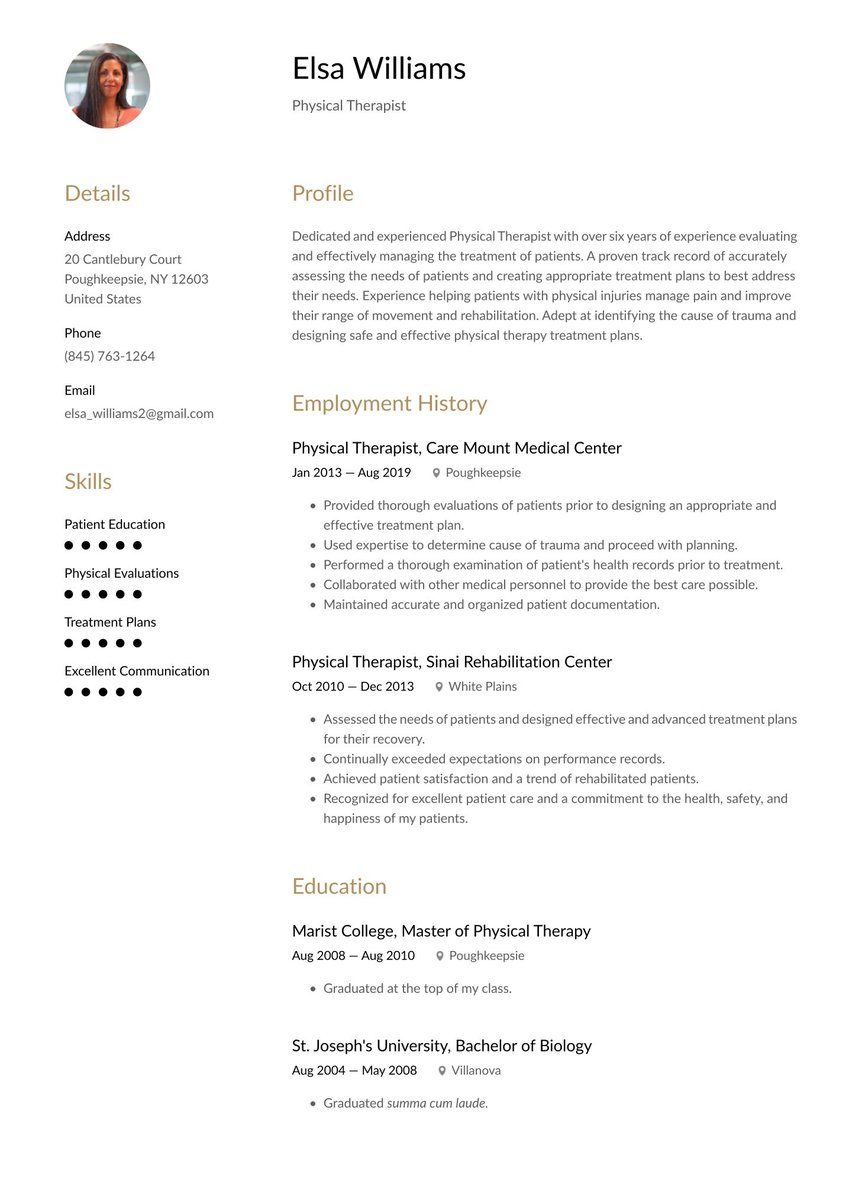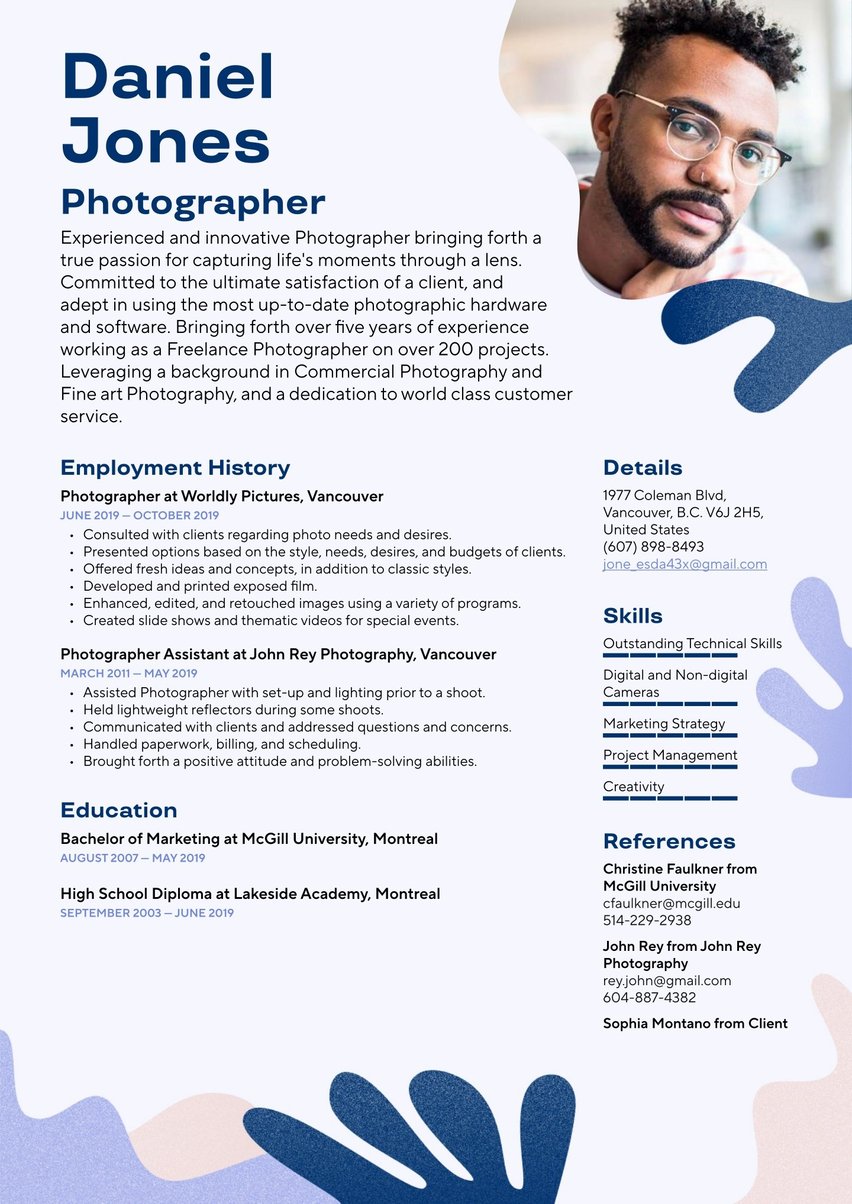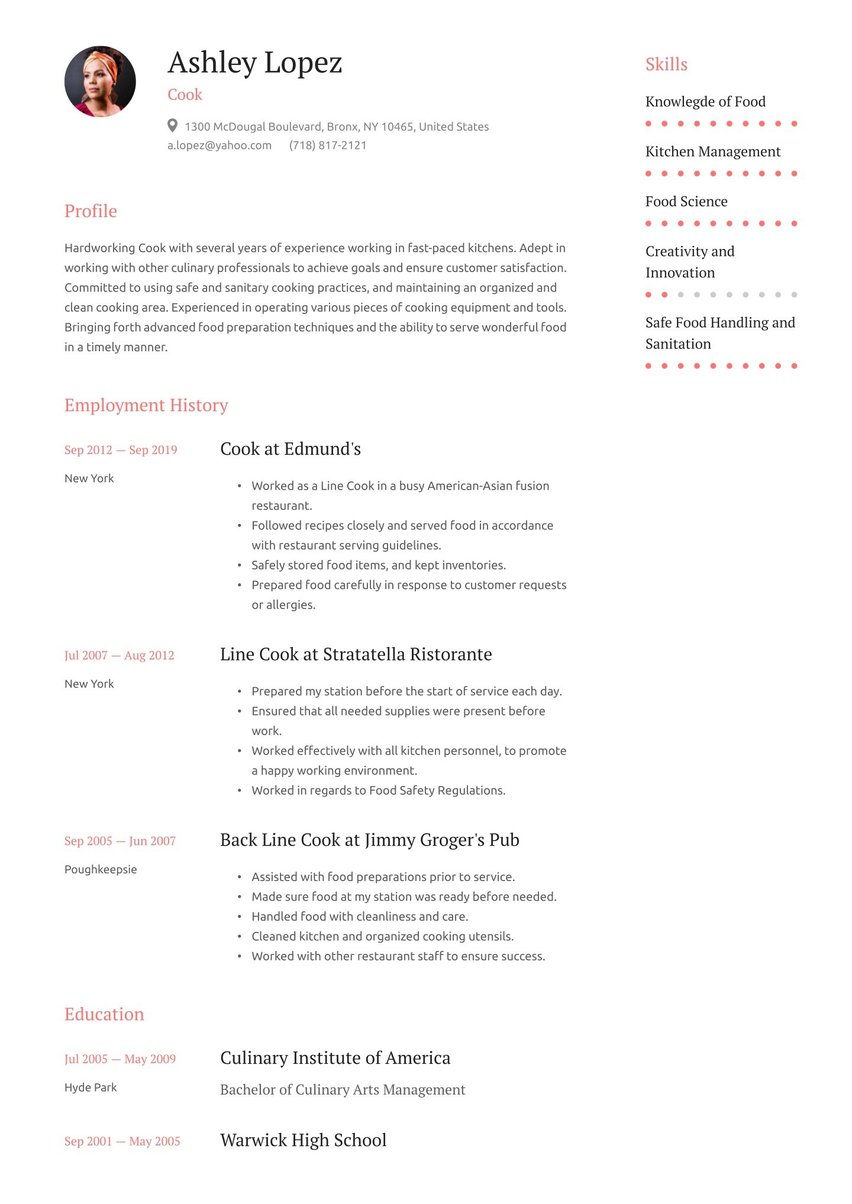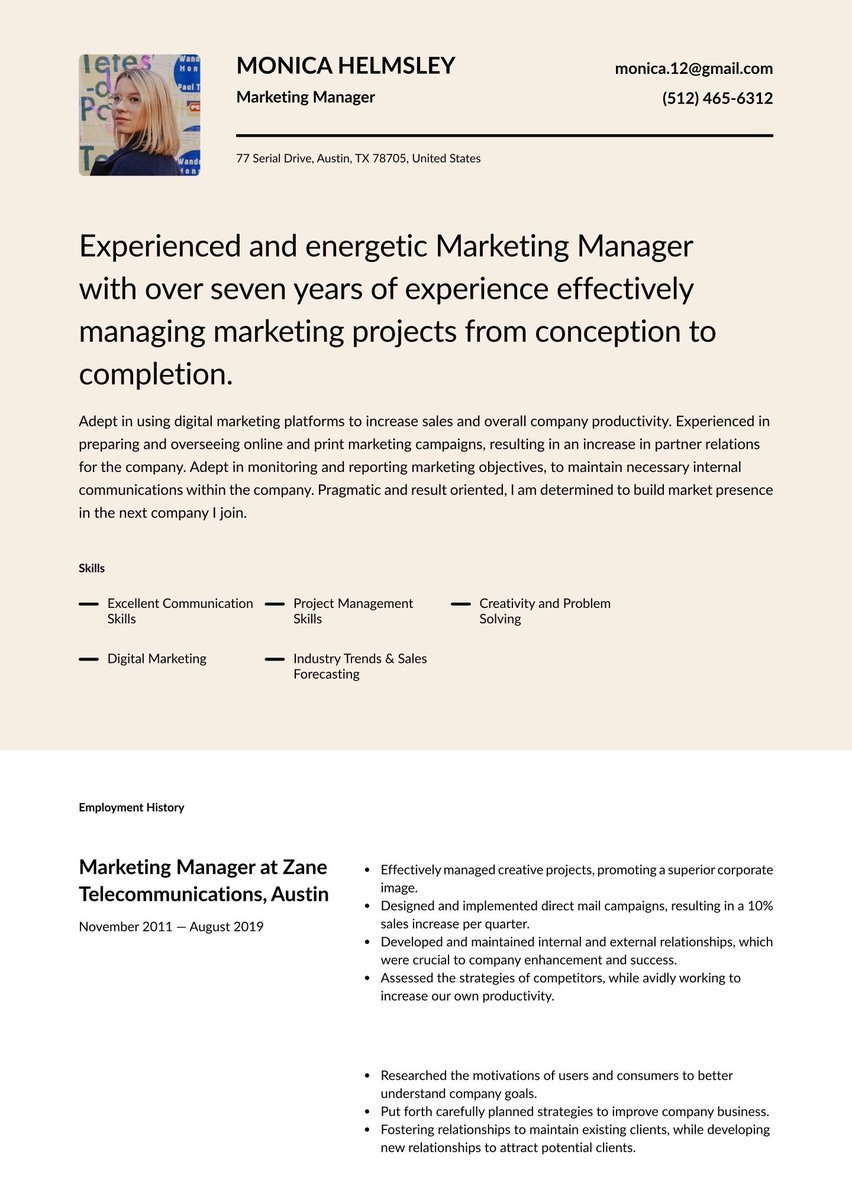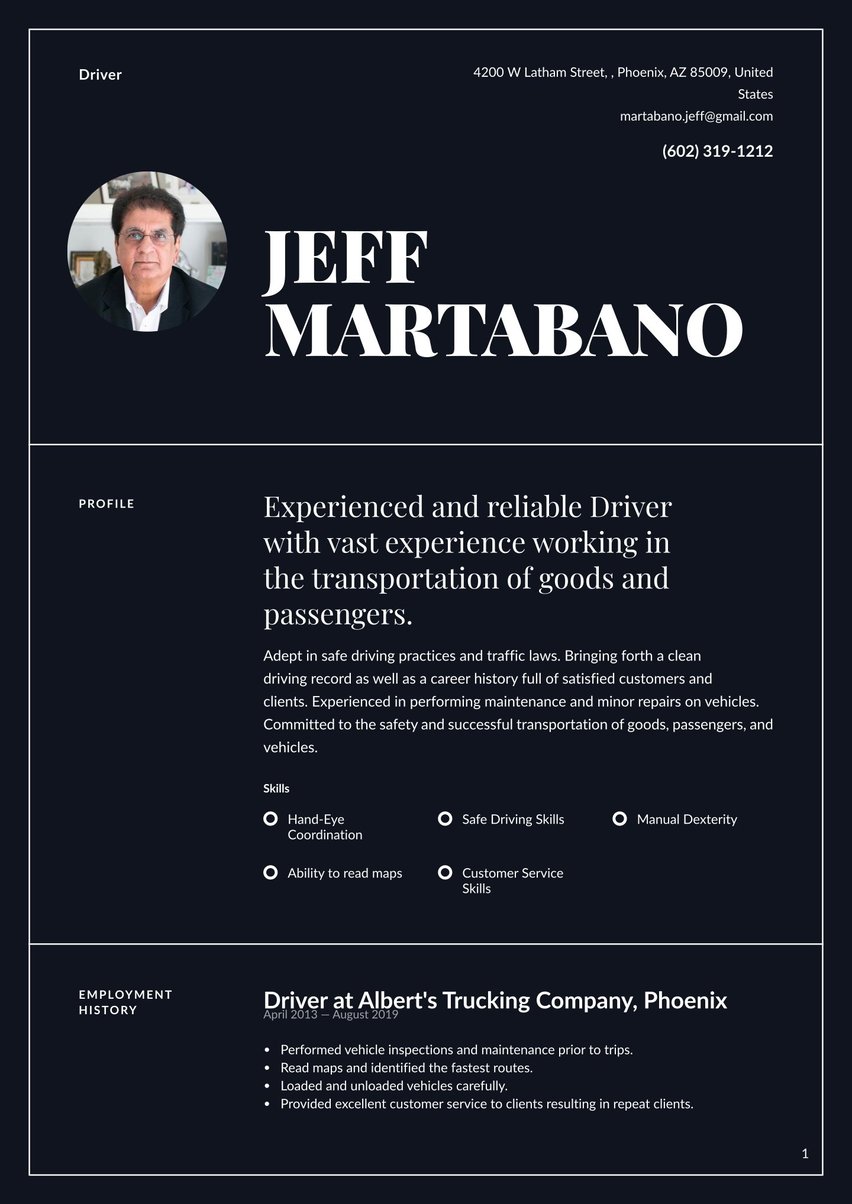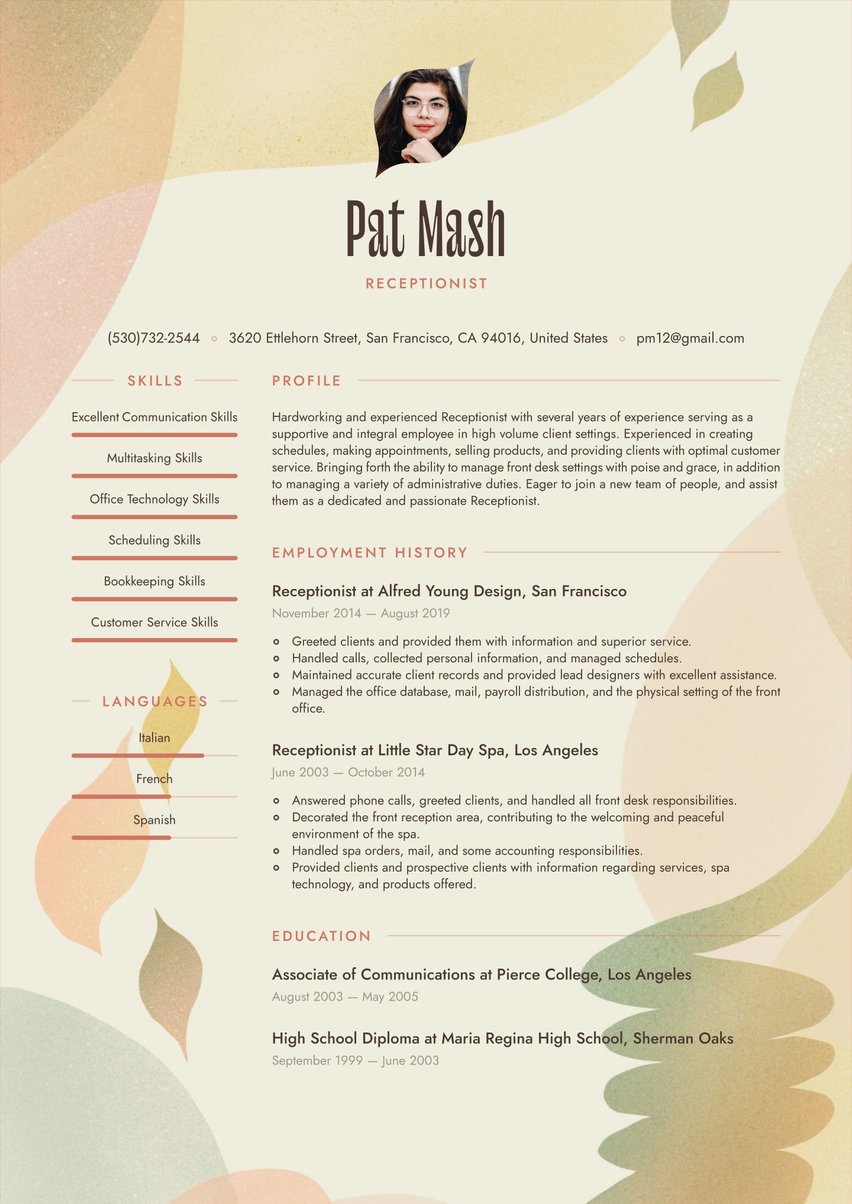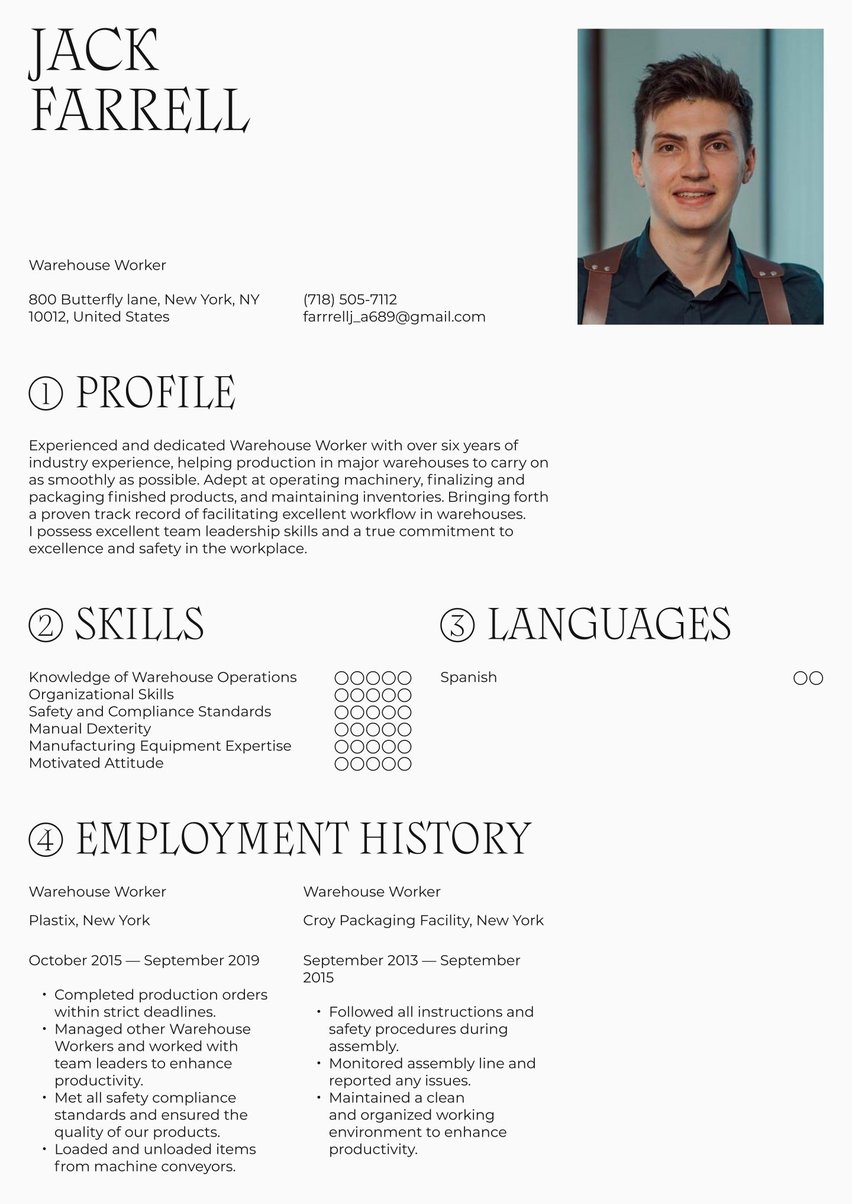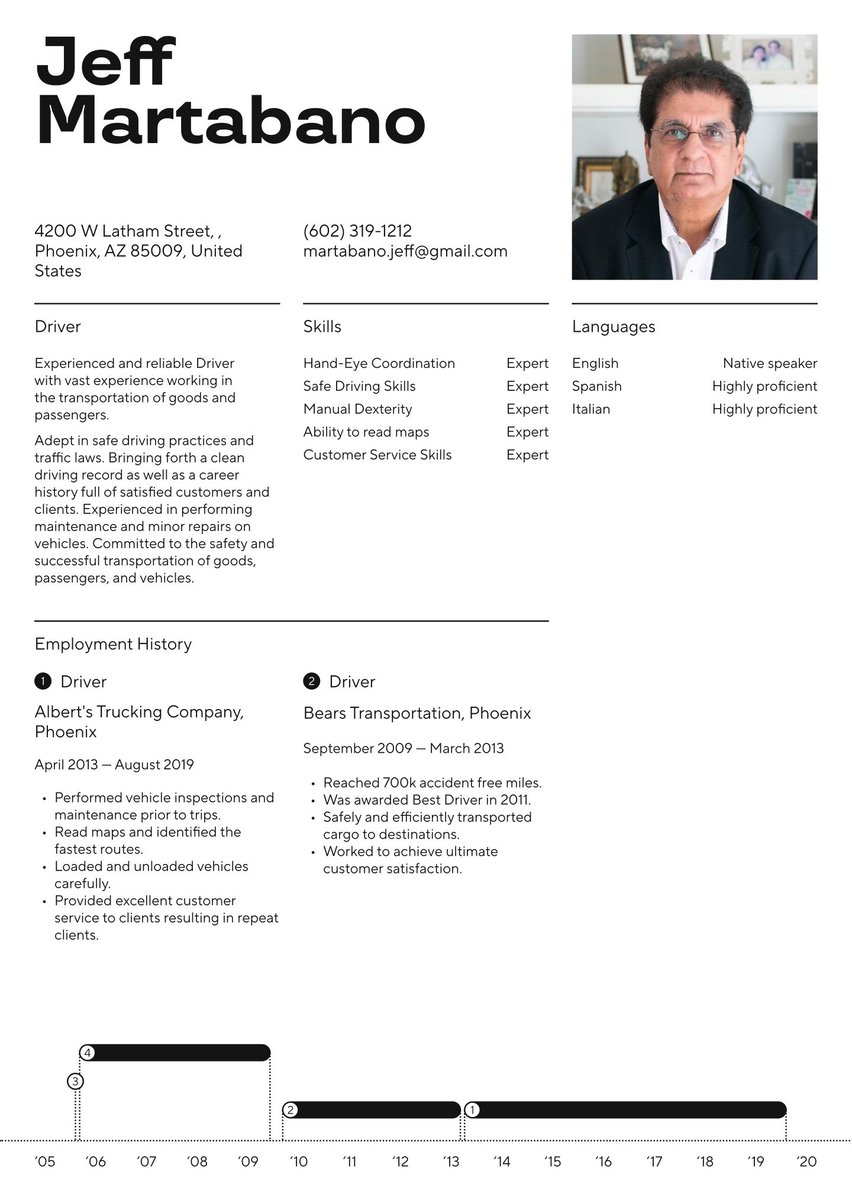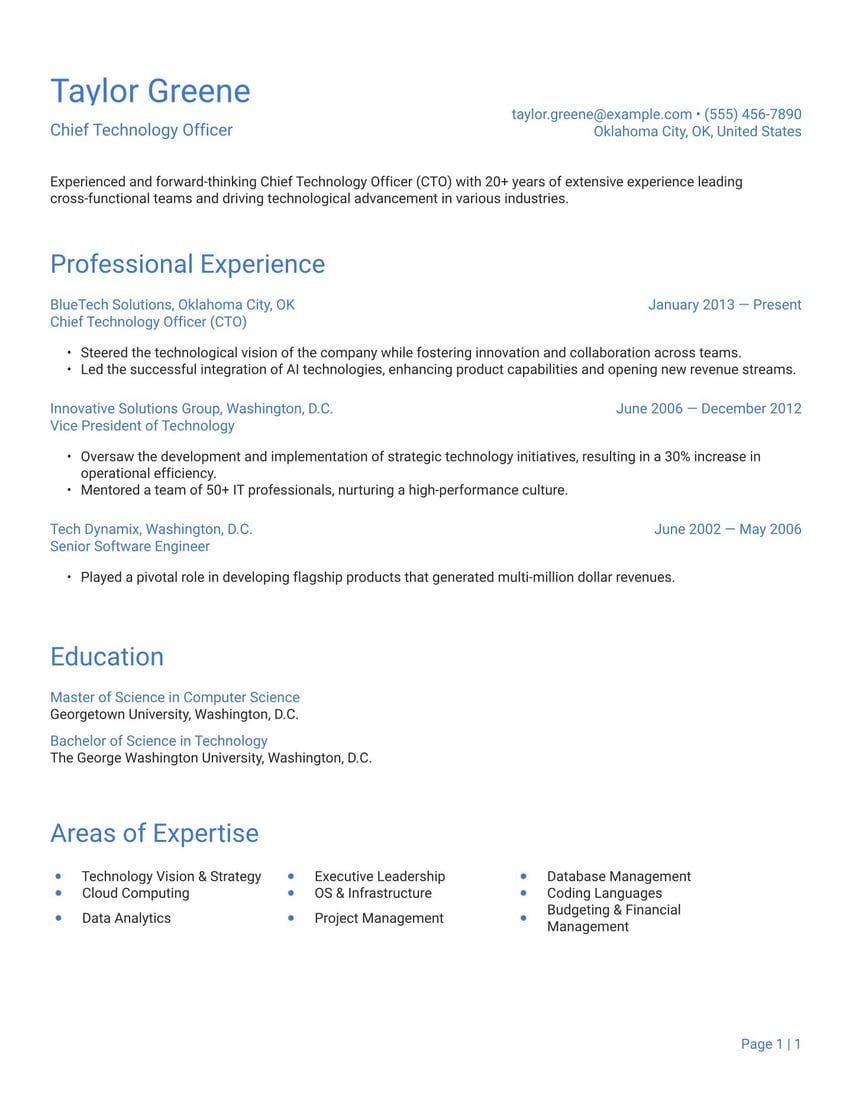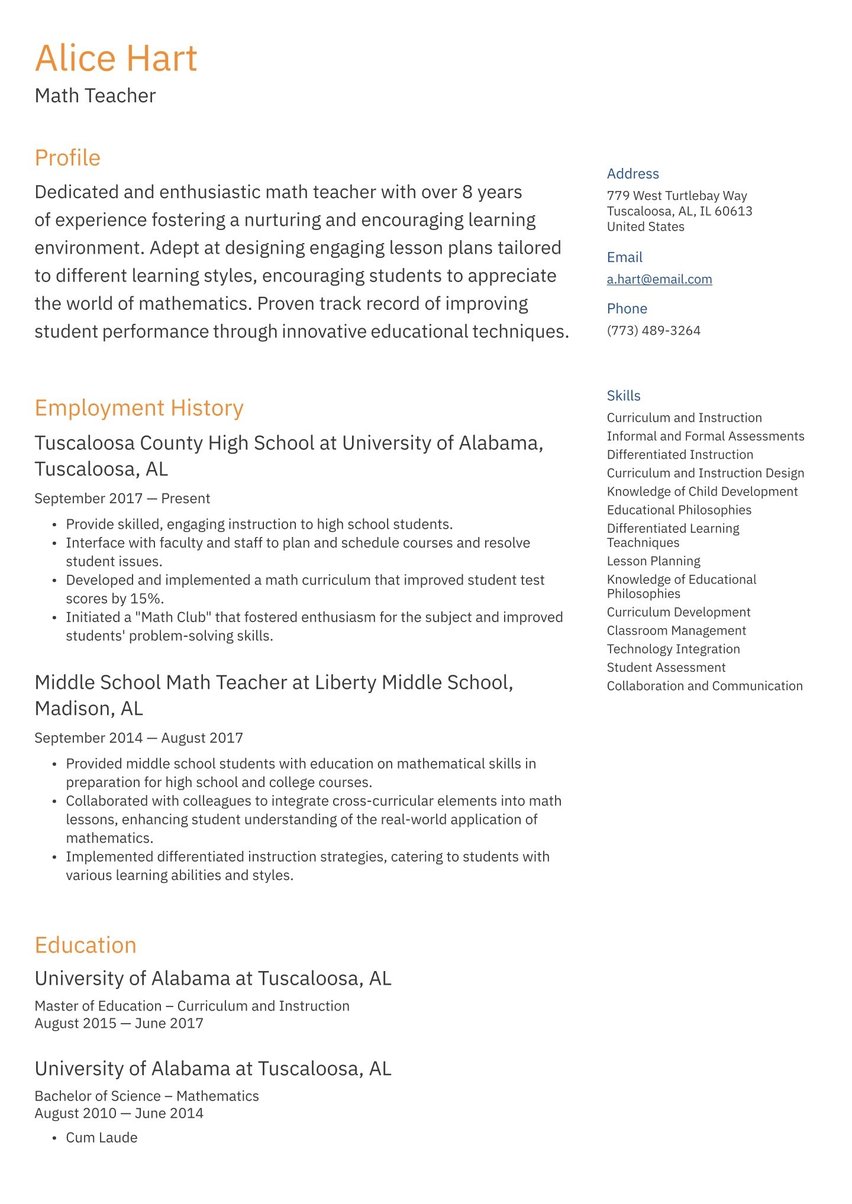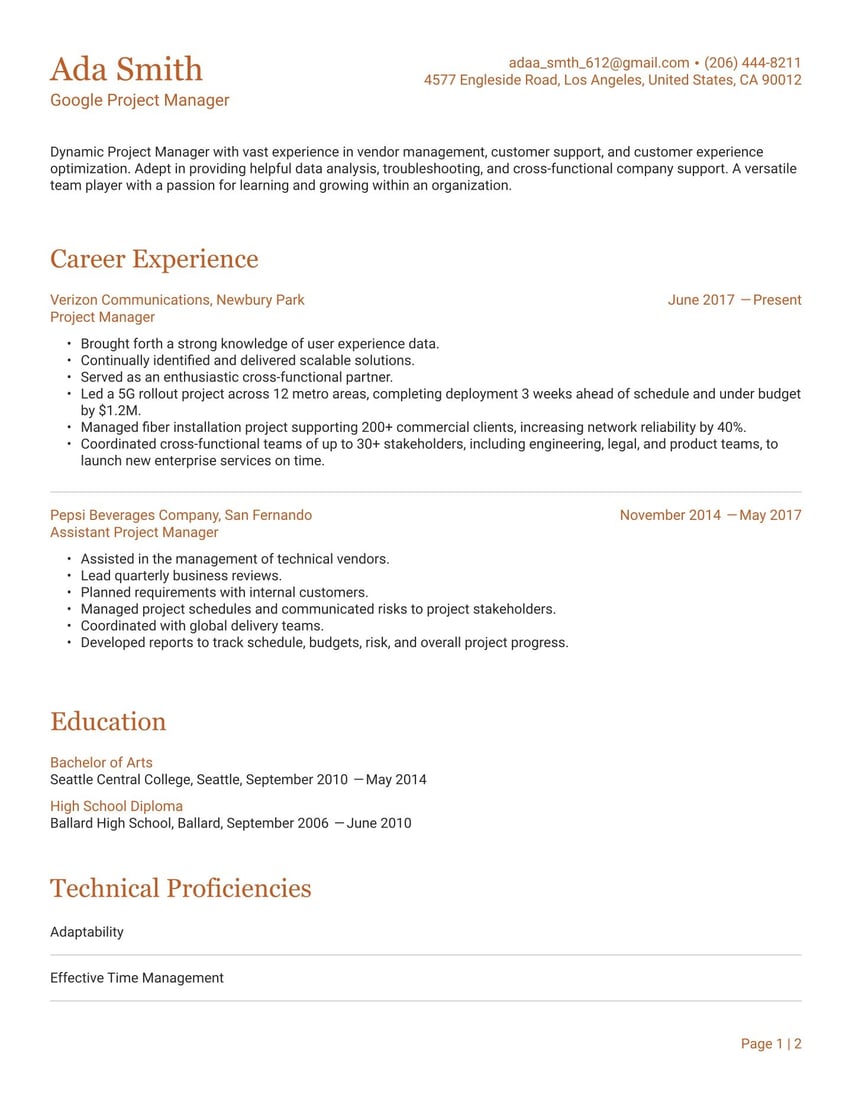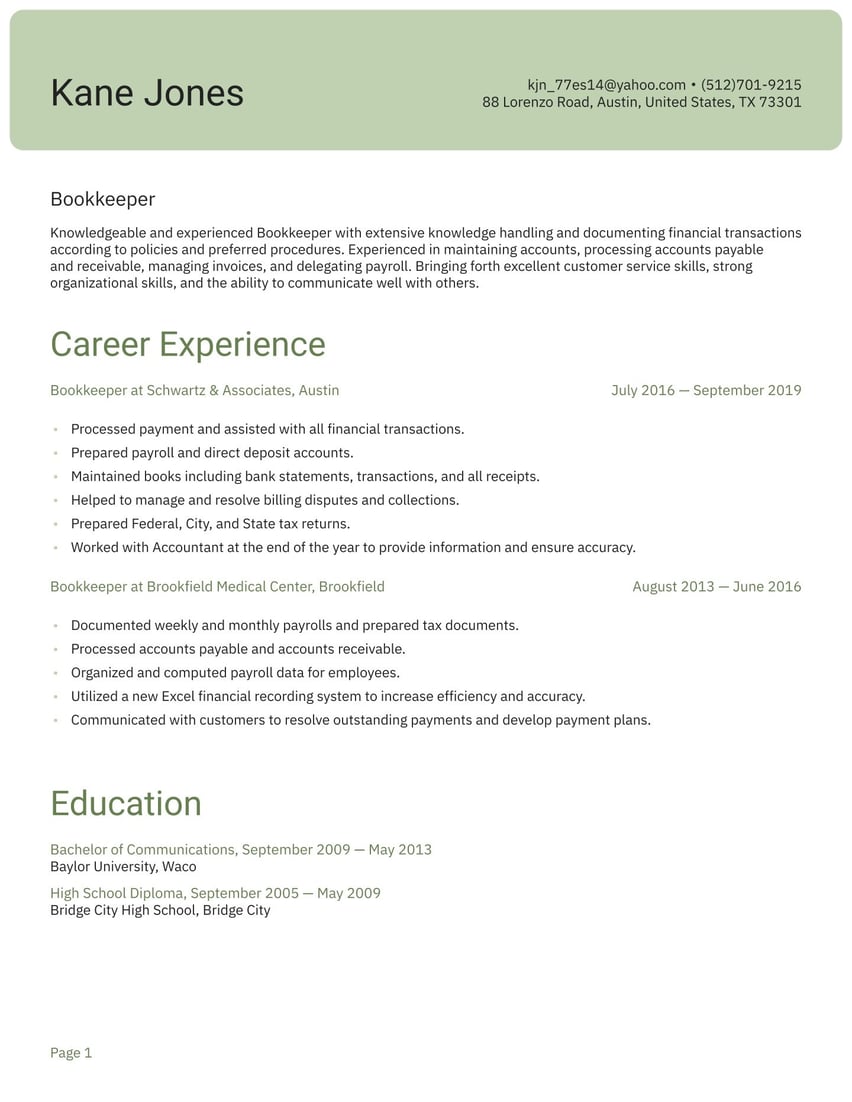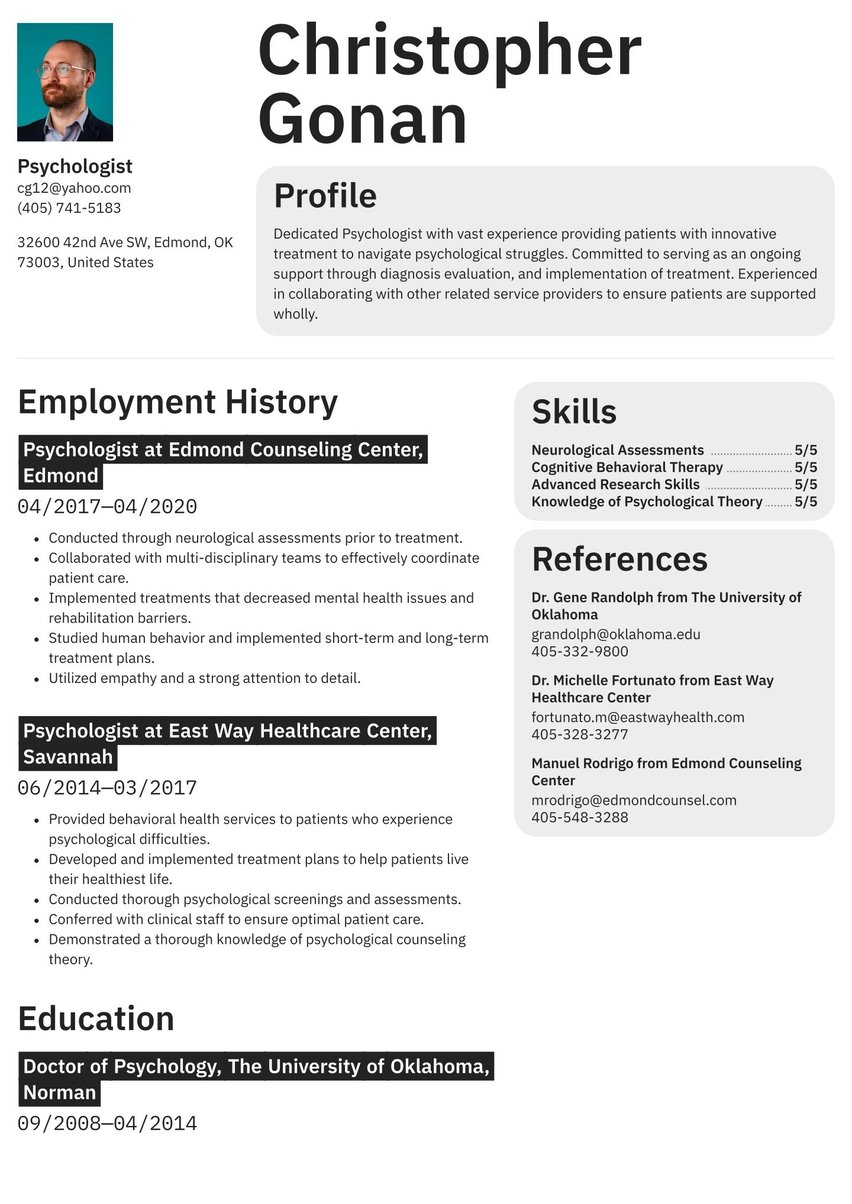07/2013 - 08/2019, Construction Worker, Landon Building Associates, Portland
- Worked within teams to achieve success on several building projects, including commercial and residential structures.
- Utilized my skills and knowledge of hand and power tools to design and build.
- Followed blueprints and models accordingly.
- Dug trenches, and compacted dirt in preparation of jobs.
- Used safe working practices at all times, and adhered to company guidelines.
- Worked to please the client and aimed to achieve 100% client satisfaction.
04/2008 - 06/2013, Construction Worker, Salvatore Family Architects, Bangor
- Cleaned and prepared construction sites prior to the start of a job.
- Assisted machine operators, using safety practices.
- Safely used explosives to demolish existing structures.
- Mixed and poured even cement floors.
- Operated a variety of large powered machinery including drills, grinders, saws, blowtorches, and jackhammers.
- Loaded and unloaded building materials and machinery for jobs.
09/2006 - 03/2008, Sales Associate, Tractor Supply, Bangor
- Worked with store mission at the forefront of my actions.
- Greeted and assisted customers.
- Provided customers with product information, and assembly at times.
- Learned about the customer's project and made suggestions based on project specifics.
09/2005 - 05/2007, Associate of Carpentry, Eastern Maine Community College, Bangor
- Advanced Carpentry Skills
- Physical Fitness and Stamina
- Safe Working Skills
- Knowledge of Power Tools and Hand Tools
- Mathematical Skills
- Blueprint Reading Skills
If you want to find a job in construction, a solid resume is the foundation of your job search. With the right resume, you can secure your first job in the field or level up to an advanced position.
Construction Worker resume examples by experience level
But how do you build a winning resume? You need to follow a blueprint for success, which involves highlighting your relevant skills and aligning your experience with the job requirements.
Your resume should demonstrate your ability to operate tools or machinery, collaborate with other crew members, and follow safety procedures to stay compliant. It should also showcase your contributions to other projects, such as meeting deadlines and exceeding quality standards.
Whether you’re new to the industry or have many years of construction experience, we’ll show you the tools to craft a construction resume to stand out and land an interview.
Resume guide for a construction worker resume
Boost your job search with resume.io. We have helpful guides and resume examples for over 500 professions. With our all-in-one resume builder, you can make an impressive resume in minutes, not hours.
This resume guide and corresponding construction resume example will cover the following:
- How to write a construction worker resume
- The right resume format for construction
- Adding your contact information
- How to write a great summary
- Listing your relevant experience and skills
- How to describe your education
- Choosing the design and layout of a resume
- What the construction job market looks like and how much you can earn
How to write a construction worker resume
Before you start writing your resume, know what sections to include. Your construction resume should have these elements:
- A resume header
- A resume summary, also known as a profile or personal statement
- An employment history section
- A resume skills section
- An education section
On a job site, every construction worker has a role to play, whether you’re laying the brick, painting the walls, or installing the plumbing fixtures. Your resume should convince an employer you can make a valuable contribution to construction projects.
To sell your skills to a prospective employer, follow these tips:
- Emphasize achievements, not duties. Instead of describing the tasks you’ve performed, explain how your work has made a difference. For example, you can discuss how you’ve helped to minimize project delays or maintain a safe work environment.
- Tailor your resume to the job. If you’re applying for general construction jobs, employers may have different requirements depending on their needs. Customize your resume for each job by highlighting your essential skills for the specific role.
- Include resume keywords. Hiring managers often look for keywords on construction resumes. Add some to your resume for a better chance of moving forward.
Build an ATS-optimized resume
If you’re applying to a large construction firm, there’s a chance your resume will have to pass through an applicant tracking system or ATS. The best way to beat the ATS is by incorporating key phrases from the job description into your resume.
For example, consider a construction job posting that has these requirements:
- Heavy equipment operator
- Blueprint reading
- Safety compliance
- Quality control
- Teamwork
Using those keywords, you could write a resume summary like this one:
Experienced construction worker skilled in heavy equipment operation and blueprint reading. Knowledgeable about safety compliance and quality control procedures with OSHA 10 certificate. Excellent communication, time management, and teamwork skills.
Learn more about mastering the ATS with our article on resume ATS optimization.
Choosing the right format for a construction worker resume
The format you choose provides structure for your resume. Make sure you select the best format to showcase your skills and experience.
Most construction workers should use the chronological resume format. This resume format emphasizes your relevant experience in the construction industry. It lists your work experience in reverse chronological order, starting with your current or most recent job.
If you’re looking for your first construction job or you’re transitioning into the field, you may want to use a functional resume format. Unlike a chronological resume, a functional resume prioritizes the transferable skills you can bring to the job site, such as safety compliance or physical stamina.
Some construction workers can benefit from using a hybrid resume. This format combines the chronological and functional formats, placing equal importance on your experience and skills. It’s a good choice if you have employment gaps or if you’ve recently completed a training or apprenticeship program.
You can find the right format by exploring the resume templates we offer in our resume builder. You can also browse our resume examples to see versions of the different formats.
Include your contact information
When you arrive at a new job site, you introduce yourself to the foreperson and other crew members.
Similarly, your resume header serves as your introduction to a prospective employer. It also tells a hiring manager how to reach you if they want to schedule an interview.
Include these elements in your resume header:
- Full name and title. In a large font, provide your first and last name. After your name, include the job title you’re pursuing, such as plumber or carpenter.
- Professional email address. Give employers a professional email that uses a combination of your name or initials, such as firstinitial.lastname@email.com.
- Phone number. Provide the phone number where recruiters can easily reach you. Make sure you have a professional voicemail greeting if they need to leave a message.
- Location. Only include your city and state. You don’t need to list your full address for safety reasons.
- LinkedIn. If you have an active LinkedIn profile, include a link in your resume header.
Don’t include:
- Date of birth. Including your age can lead to potential discrimination.
- Personal details. You don’t need to provide other personal details, such as your marital status or passport number.
- Photo or headshot. Your appearance is irrelevant to the job, so you don’t need a photo on your resume.
Seth Williams
Cement Finisher
seth.williams@email.com
(765) 583-1039
Baltimore, MD
linkedin.com/sethwilliams
Seth Williams
Concrete Artisan
seth_rocks_out@email.com
(765) 583-1039
789 Loveland Lane, Baltimore, MD 21201
Age: 27
Married
Make use of a resume summary
In the design phase of a construction project, an architect creates a 3D model of the building or structure. It’s a compact version of the proposal with enough detail to convince a contractor to take on the project. That’s how a profile or summary works on your resume.
In your resume summary, you want to give the hiring manager an overview of your skills, experience, and training. You should give them just enough information that they decide to read further.
The summary is usually the first part of your resume that an employer sees. Use this space to describe your strongest skills and qualities. For example, do you follow directions well, or have you begun to specialize in an area of construction? Highlight your strengths in this statement to catch a recruiter’s attention.
In your summary, you should also include your years of experience in the field, your knowledge of safety regulations, and any certifications you’ve completed. If the employer has specific requirements for the role, such as a forklift license or experience with power tools, mention those in your summary.
If you want to impress an employer, describe one or two of your top career achievements. For example, you can discuss your experience working on multi-million dollar projects or completing work under tight deadlines. Highlighting your accomplishments can show a prospective employer why you’d make a good addition to their construction crew.
Do you want more ideas for your resume summary? Check out our related resume examples:
Check out our adaptable construction worker resume summary examples below:
Motivated Junior Construction Worker with foundational experience in residential building projects and a strong grasp of safety protocols. Skilled in using hand and power tools, interpreting blueprints, and supporting team objectives. Eager to apply physical strength and a collaborative spirit to advance in the construction industry while upholding high standards of workmanship and safety.
Experienced and driven Construction Worker with over eight years of experience in the construction industry. Proven track record of successfully working as part of a team for multi-million dollar building projects. Bringing forth the ability to lift heavy objects, and operate many different types of machinery used in the building process. Experienced in building codes and regulations, as well as safe working practices. A devoted worker ready to utilize my expertise and achieve more building success.
Esteemed Construction Supervisor with a robust history of orchestrating large-scale commercial and residential projects. Renowned for advanced project management and strategic execution, ensuring compliance with building codes and elevating safety standards. Instrumental in pioneering construction techniques that streamline operations and mentorship that cultivates high-performing teams. Committed to delivering excellence and fostering enduring client relationships.
Outline your construction worker experience: a blueprint for success
In your work experience section, build out your past jobs to show employers your dedication and reliability. List your experience in reverse chronological order, with your most recent job at the top. Work backward until you’ve included several experiences relevant to the job you’re targeting.
For each job, list the most relevant tasks you completed. Use bullet points to describe your contributions to a project or job. Each bullet point should start with a strong verb, like “built,” “renovated,” “repaired,” or “implemented.” Make sure these bullet points align with the responsibilities of the new role. Tailoring your resume to the job description can earn your resume extra attention from the hiring manager.
Additionally, you can impress a recruiter by focusing on the outcomes or results of your construction work, instead of simply listing your job duties. For example, take a look at these task-focused bullet points:
- “Worked as a carpentry apprentice to learn on the job”
- “Helped a master electrician wire houses”
These bullet points don’t tell an employer anything about your skills, work ethic, or expertise. They also don’t show how you contribute to the success of construction projects. Now consider these reworked versions of the same bullet points:
- “Completed residential carpentry projects as an apprentice, contributing to the on-time delivery of high-quality structures.”
- “Wired homes in collaboration with a master electrician, ensuring safe electrical installations that met code requirements.”
For more inspiration, view our adaptable construction worker employment history resume example below:
Construction Worker at Landon Building Associates, Portland
July 2013 - August 2019
- Worked within teams to achieve success on several building projects, including commercial and residential structures.
- Utilized my skills and knowledge of hand and power tools to design and build.
- Followed blueprints and models accordingly.
- Dug trenches, and compacted dirt in preparation of jobs.
- Used safe working practices at all times, and adhered to company guidelines.
- Worked to please the client and aimed to achieve 100% client satisfaction.
Construction Worker at Salvatore Family Architects, Bangor
April 2008 - June 2013
- Cleaned and prepared construction sites prior to the start of a job.
- Assisted machine operators, using safety practices.
- Safely used explosives to demolish existing structures.
- Mixed and poured even cement floors.
- Operated a variety of large powered machinery including drills, grinders, saws, blowtorches, and jackhammers.
- Loaded and unloaded building materials and machinery for jobs.
Sales Associate at Tractor Supply, Bangor
September 2006 - March 2008
- Worked with store mission at the forefront of my actions.
- Greeted and assisted customers.
- Provided customers with product information, and assembly at times.
- Learned about the customer's project and made suggestions based on project specifics.
How to write a construction worker resume with no experience
If you don’t have experience working on construction projects, you’ll probably enter the industry as a general laborer before advancing into a specific trade. In this case, list your experiences with projects or activities that show your physical abilities or endurance. For example, you may discuss how you moved heavy boxes in a warehouse setting.
For a construction resume with no experience, you should also emphasize your transferable skills. Contractors and other employers may overlook your lack of experience if you can prove you’re a reliable, diligent worker. Showcase your relevant skills in areas like teamwork, time management, and problem-solving.
Even if you have no professional experience in the construction industry, you may have other valuable experiences you can include on your resume. Include relevant work you’ve done in other areas, such as landscaping or painting. Describe times when you provided manual labor, followed instructions, or demonstrated a strong work ethic.
By following these tips, you can convince a prospective employer to hire you, even without work experience in the construction field.
Include your relevant skills as a construction worker
In the competition for construction jobs, your skills are the most valuable tool you have in your belt. Show them off in a well-structured skills section. Highlight your expertise in a particular area, such as carpentry, plumbing, or electrical work.
Your construction resume should have relevant hard skills, such as a knowledge of construction materials and the ability to read blueprints. Add the tools and machinery you know how to use to your skills section.
While hard skills are essential, it’s also a good idea to mention some of your soft skills. These are the interpersonal traits you use to work hard and collaborate with other crew members. Some common soft skills for a construction worker resume include communication, teamwork, reliability, critical thinking, and flexibility.
Using our resume builder, you can add pre-written skills to your resume, along with your proficiency level in each area. You can also write in specific skills you want to include.
Here’s what the skills box looks like in our construction worker resume template.
- Advanced carpentry skills
- Physical fitness and stamina
- Safe working skills
- Knowledge of power tools and hand tools
- Mathematical skills
- Blueprint reading skills
Think about ways you can showcase your skills in other areas of your resume. Provide examples to show employers how you’ve used your skills to be successful on a job site.
For example, these are some skills you can highlight in your work experience section and resume summary:
- Team collaboration. Explain how you’ve worked with other construction workers to follow plans, meet deadlines, and adhere to project requirements.
- Safety compliance. Describe how you’ve followed safety regulations, such as OSHA standards, and helped to reduce incidents on worksites.
- Knowledge of tools and equipment. Showcase your ability to use hand and power tools, heavy machinery, computerized machines, or other common construction equipment.
When in doubt, review the job description to see what skills you should prioritize on your resume.
Detail your education & relevant construction worker certifications
Most employers require construction workers to have a high school diploma or equivalent. While it’s possible to get a job without higher education, a trade school or apprenticeship can set you apart and help you land a higher-paying position.
If you don’t have a higher degree, list your high school diploma and the name of your school. If you’ve attended a vocational school, you can remove your high school education and list your postsecondary certificate or associate degree.
Besides your education, you can include other relevant credentials in your education section. For example, you can highlight:
- Training and certifications. If you’ve completed a training or safety course, include it on your resume. You can also add certifications you’ve earned from OSHA and other organizations.
- Apprenticeships. In the construction industry, apprenticeships are common for learning trades. You can list an apprenticeship program in your resume education section.
- Licensure. States have different licensing requirements, but if you have one, make sure to add it to your resume. For example, California requires anyone who does roofing work to get a C-39 license.
- Professional development. You can show your commitment to the industry by joining a professional organization in your preferred trade or area, such as the Masonry Institute of America.
Associate of Carpentry, Eastern Maine Community College, Bangor
September 2005 - May 2007
Pick the right layout & design for a construction worker resume
Once you’ve nailed down the text for your resume, it’s time to bring it all together with an attractive design. Your layout is the blueprint that keeps your resume organized and appealing to prospective employers.
To give yourself the best chance of catching a hiring manager’s attention, keep your resume to one page. Use formatting elements, such as bullet points and white space, to make your resume easy for employers to read. You can also use bold section headers to guide hiring managers through your work history, skills, and education.
For construction jobs, it’s best to limit creative formatting on your resume. Use color sparingly and skip the graphics or photos. Make your skills and qualifications the focus of your resume.
If you’re struggling to find the right design for your resume, check out our resume templates to craft a clean, professional resume in just a few minutes. Take a look at the Simple resume category for a streamlined design that works well for online applications. Our resume builder makes it easy to customize your resume and save it in the right format.
Construction worker text-only resume example
Profile
Experienced and driven Construction Worker with over eight years of experience in the construction industry. Proven track record of successfully working as part of a team for multi-million dollar building projects. Bringing forth the ability to lift heavy objects, and operate many different types of machinery used in the building process. Experienced in building codes and regulations, as well as safe working practices. A devoted worker ready to utilize my expertise and achieve more building success.
Employment history
Construction Worker at Landon Building Associates, Portland
July 2013 - August 2019
- Worked within teams to achieve success on several building projects, including commercial and residential structures.
- Utilized my skills and knowledge of hand and power tools to design and build.
- Followed blueprints and models accordingly.
- Dug trenches, and compacted dirt in preparation of jobs.
- Used safe working practices at all times, and adhered to company guidelines.
- Worked to please the client and aimed to achieve 100% client satisfaction.
Construction Worker at Salvatore Family Architects, Bangor
April 2008 - June 2013
- Cleaned and prepared construction sites prior to the start of a job.
- Assisted machine operators, using safety practices.
- Safely used explosives to demolish existing structures.
- Mixed and poured even cement floors.
- Operated a variety of large powered machinery including drills, grinders, saws, blowtorches, and jackhammers.
- Loaded and unloaded building materials and machinery for jobs.
Sales Associate at Tractor Supply, Bangor
September 2006 - March 2008
- Worked with store mission at the forefront of my actions.
- Greeted and assisted customers.
- Provided customers with product information, and assembly at times.
- Learned about the customer's project and made suggestions based on project specifics.
Skills
- Advanced carpentry skills
- Physical fitness and stamina
- Safe working skills
- Knowledge of power tools and hand tools
- Mathematical skills
- Blueprint reading skills
Education
Associate of Carpentry, Eastern Maine Community College, Bangor
September 2005 - May 2007
Construction worker job market & outlook
Construction is a fast-growing industry, so you should have some options when looking for jobs. There’s a need for workers to build residential, commercial, and infrastructure development across the United States. With thousands of job openings projected each year, employment in the construction industry is expected to keep growing.
- The United States Bureau of Labor Statistics (BLS) expects above-average employment growth across all construction occupations through 2033.
- The construction industry should have around 663,500 job openings each year on average.
What type of salary you can expect in construction
The salary you earn in construction depends on your experience and your trade. The average salary for construction occupations is $55,680, which is higher than the national average wage for all jobs.
Some construction workers, including boilermakers, electricians, plumbers, and sheet metal workers, can earn even more money, according to the BLS.
Key takeaways for building a construction worker resume
The construction industry is rapidly expanding, with a growing need for skilled labor. That means it’s a great time to enter the industry. When applying for jobs, showcase your relevant skills, vocational training, and work experience.
If you’re applying for your first job in construction, emphasize your strong work ethic and transferable skills, such as teamwork. By customizing your resume to the role, you have a better chance of building your way to the perfect job.
Start your construction job search with a resume builder, but don’t stop there. With resume.io’s 18 innovative tools, you can search for jobs, track your progress, prepare for interviews, and negotiate a salary—all with our powerful career toolkit at your fingertips.


.jpg)

.jpg)














